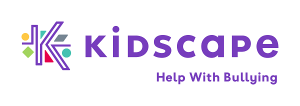EduCare for Education in partnership with ASIC
We offer a 15% discount for settings receiving accreditation from the ASIC.
The independent, government-approved accreditation body, ASIC, specialises in the accreditation of education settings both in the UK and overseas to ensure that the required standards are being met for administration systems, teaching and delivery of courses.
EduCare has teamed up with ASIC to offer high-quality, effective online safeguarding and professional development training.
EduCare for Education is an annual licence which provides unlimited access to a range of over 20 training courses written or endorsed by subject experts, including Kidscape, Family Lives, Bullying UK, and many more. Courses cover topics
Each course is independently verified by the CPD Certification Service with personalised certificates upon completion to provide evidence of learning.
To access an exclusive 15% discount call Andrea Avery on +44 1926 436 242 or email andrea.avery@educare.co.uk and quote ASIC15 for your 15% discount.
Training courses
The following courses will provide essential Safeguarding and Duty of Care knowledge and are all included within the service.
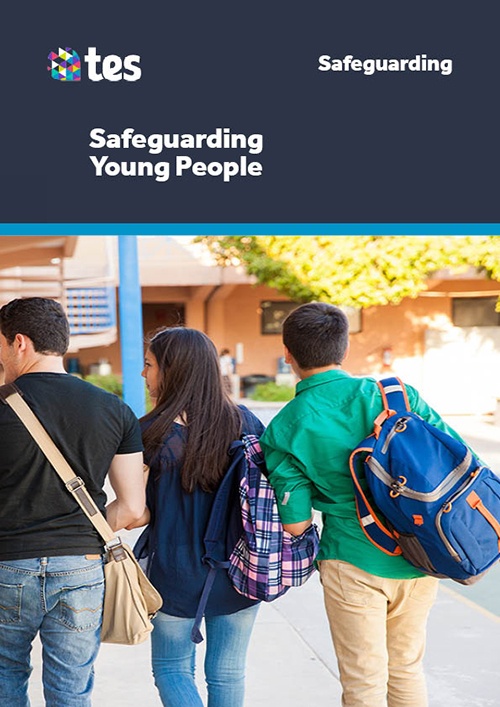
Safeguarding Young People
Safeguarding Young People, endorsed by established youth organisations, provides the key information needed to help raise your awareness of young people who may be vulnerable because of their age, relative inexperience, past abusive experiences or current circumstances.
Read more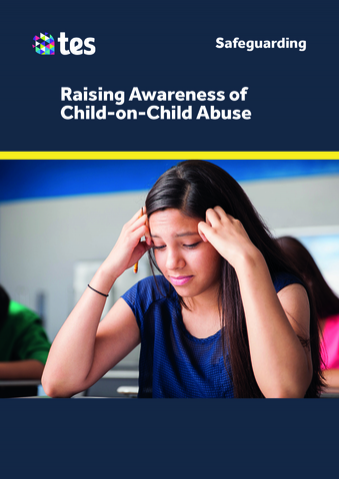
Raising Awareness of Child-on-Child Abuse
Child-on-Child abuse is any form of physical, sexual, emotional, financial, and/or coercive control exercised between children and young people; this includes intimate and non-intimate relationships.
Read moreSafeguarding Young People
This four module course delivers four CPD hours and comprehensively covers:
- Identify who may be vulnerable.
- Recognise the signs and indicators of abuse.
- Understand what to do if a young person confides abuse to you.
- Learn about recording and reporting procedures.
- Recognise good practice guidelines.
Raising Awareness of Child-on-Child Abuse
The purpose of this course is to help you:
- understand what peer-on-peer abuse is
- understand the different types of child-on-child abuse
- understand who child-on-child abuse may affect and what external influences there are
- be aware of the prevalence of child-on-child abuse
- understand social norms and peer pressure
- recognise early signs that might indicate abuse
- know what action to take if you know or suspect that a young person is experiencing abuse
- implement preventative strategies within school or college.
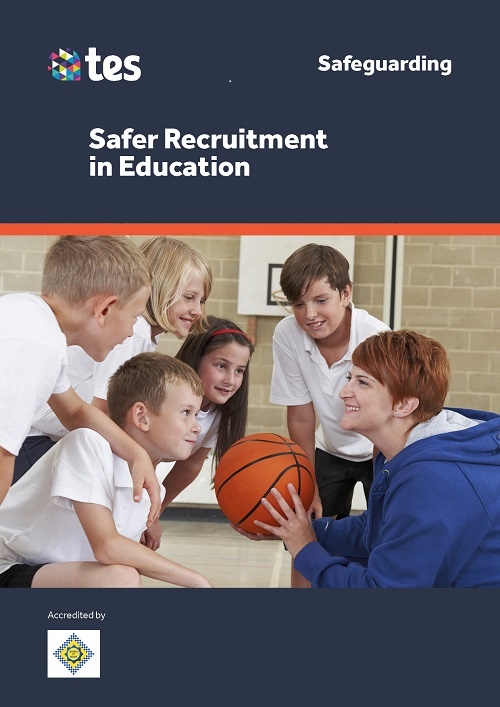
Safer Recruitment in Education
This course on safer recruitment looks at what you need to do to safeguard children and young people from unsuitable people who might apply to join your education setting.
Read more_500.png)
Online Safety
The purpose of this course is to help you understand how technology is changing, the nature of children and young people’s online world, and the risk and protective factors when going online. The course has a wide range of practical advice on what can be done by you as an individual and by any organisation you work for. The course was written in partnership with Childnet International, a non-profit organisation working with others to help make the internet a great and safe place for children.
Read moreSafer Recruitment in Education
This four module course delivers four CPD hours and comprehensively covers:
- the four key stages of the recruitment process
- pre-recruitment planning and what must be in place before you advertise your post
- rejecting candidates and meeting the right ones
- obtaining the correct checks and references, including what's required from a DBS check
- post-recruitment activities, including observation and supervision
Online Safety
This two-module course will help you to understand the following:
- Understanding Online Safety
- Violent and extreme content
- Potential risk factors
- Types of content
- How children can make and receive contact online
- Conduct (e.g. Sexting, Online reputaton)
- The law and statutory guidance
- Developing a Safe Online Culture
- Positive conversations
- Reporting
- Promoting good practice
- Scenario (Short-term & long-term actions)
- Further support available
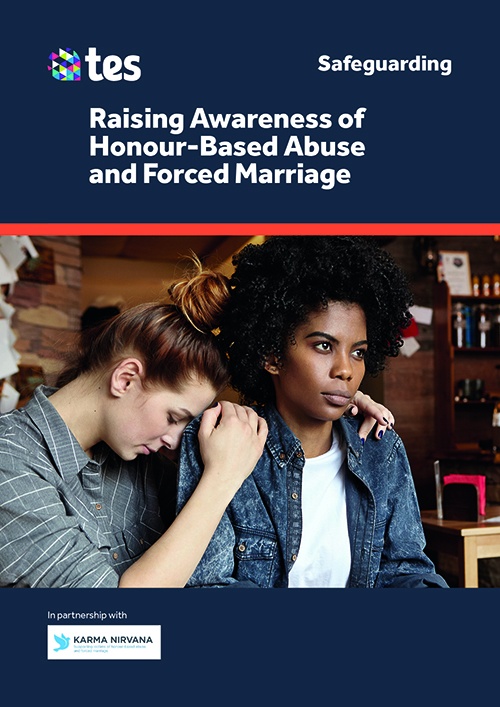
Raising Awareness of Honour-Based Abuse and Forced Marriage
Whilst growing up, a child may be taught that a set of behaviours are deemed to be honourable. If they display any dishonourable behaviours they may be abused by their family or members of their community as punishment. This course was written in partnership with Karma Nirvana, a national award-winning charity that supports both men and women affected by forced marriage and/or honour-based abuse.
Read more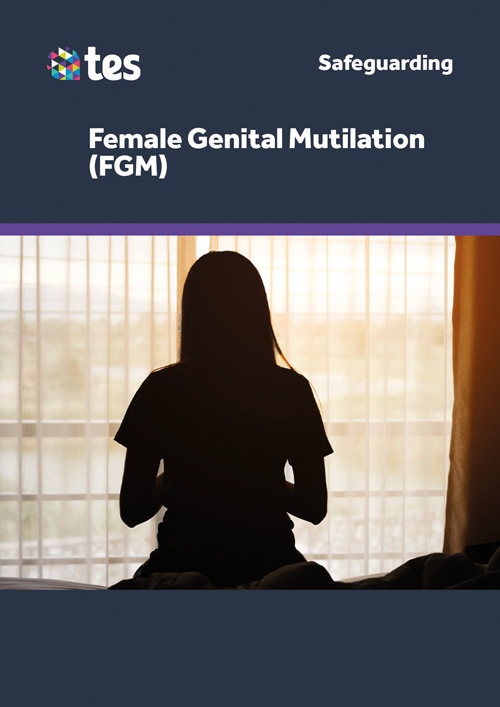
Female Genital Mutilation Awareness
This course will provide a thorough guide to help those working with young people spot the signs that Female Genital Mutilation (FGM) has taken place, or signs that it will take place.
Read moreRaising Awareness of Honour-Based Abuse and Forced Marriage
The purpose of this course is to help you:
- understand what honour-based abuse is
- understand the difference between a forced marriage and arranged marriage
- understand the prevalence of this type of abuse
- understand which communities are affected
- recognise what laws exist to protect people
- be aware of early signs that might indicate abuse
- know what action to take if you know or suspect that a young person is at risk
- understand the motives and consequences of forced marriage
- know what support is available.
Female Genital Mutilation Awareness
This course covers:
- Understand what the law states regarding FGM and the mandatory reporting duty
- Learn the prevalence, consequences and different types of FGM
- Recognise the signs that FGM has taken place, or signs that a girl is at risk
- Learn the roles and responsibilities of professionals.
- Understand the importance of working together
_500.jpg)
The Prevent Duty
This course is designed to build your understanding of extremism and radicalisation, how people may be drawn into terrorism and what you should do if you have a concern.
Read more(1)_500.jpg)
Preventing Bullying
The purpose of the course is to help you understand, recognise and prevent bullying behaviour.
Read moreThe Prevent Duty
This one module course delivers one CPD hour and comprehensively covers:
- what Prevent is
- what extremism and radicalisation are
- who may be vulnerable
- how people may be drawn into terrorism
- how messages are spread
- reporting concerns.
Preventing Bullying
At the end of the course, learners will:
- Understand what bullying is, including the five components of bullying behaviour
- Identify who may be affected by bullying, as there are some groups of people who are likely to be more affected than others
- Understand the role technology can play in bullying behaviour (cyberbullying)
- Be able to recognise a child who may be being bullied and understand the damaging physical and emotional effects
- Be able to put actions in place to tackle bullying in their organisation or setting
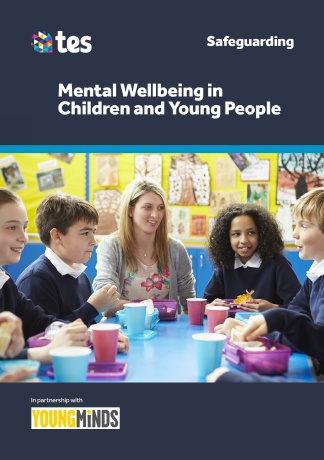
Mental Wellbeing in Children and Young People
This course looks at mental health and emotional wellbeing in young people, highlighting some signs and symptoms, along with myths and the stigma associated with mental health issues.
Read more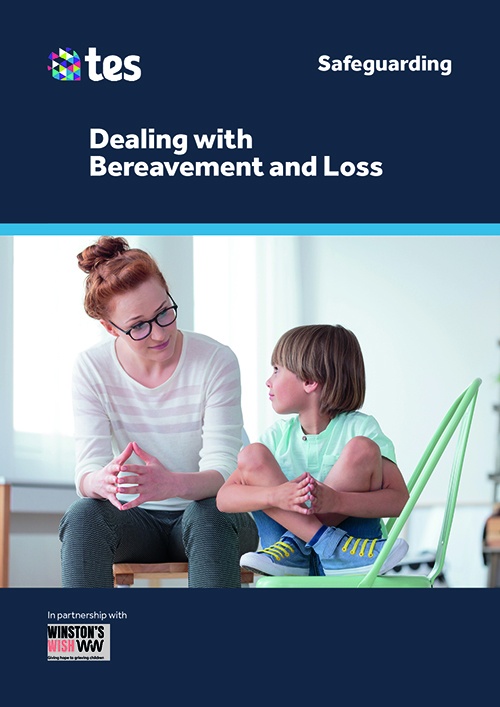
Dealing with Bereavement and Loss
Produced in partnership with Winston’s Wish, the UK’s first childhood bereavement charity, this course will help you understand what needs to be in place to support everyone involved with a bereavement in a school or college.
Read moreMental Wellbeing in Children and Young People
After completing this course you will:- Understand what mental health is in the context of the mental health continuum.
- Be able to identify some common issues faced by young people with regard to mental health.
- Recognise some of the signs and symptoms that indicate mental health issues in young people.
- Understand key risk factors that make some young people vulnerable to mental health issues.
- Learn about protective factors that build resilience in young people and some of the myths and stigma surrounding mental health issues.
- Pick up practical advice to help you support young people’s mental health and emotional wellbeing.
Dealing with Bereavement and Loss
The course covers:
- the effects of grief on a child or young person
- how a death may impact school life, and how information about the death should be shared with pupils and staff
- how to manage potentially difficult topics and avoid unnecessarily painful comments when communicating with a bereaved pupil or student
- how to communicate with children and young people about tragic events in the media
- the factors relating to how children or young people will respond to a death
- how to ensure the bereaved pupil or student’s needs are respected and supported by all staff who come into contact with them
- what should be included in a bereavement policy and the guidance staff need to support everyone during a potentially difficult time
- when to seek further help and support on bereavement for children or young people, their families or even staff members within the school.
 500x707 (2)_500.jpg)
Child Neglect
This three-module interactive course is for anyone who works with children and young people in education settings up to the age of 25.
Read more
Substance Misuse Risks
The aim of this two-module course is to increase school staff’s awareness of what substance misuse is and recognise the early indicators of misuse.
Read moreChild Neglect
Course content
Module 1 Understanding neglect
- Introduction to the basic forms of neglect and examples of circumstances parents whose children are neglected may be experiencing.
- The prevalence of neglect in comparison to other types of maltreatment in the UK.
- The Assessment Framework to identify a child’s essential developmental needs, and what dimensions these cover.
- Children’s key developmental milestones.
- Identifying neglect in older children.
- Scenarios to illustrate that what you see is not always the truth.
- The impacts of what harm neglect can do; how it can affect and damage children in key developmental areas such as social, physical and emotional development.
Module 2 Why are children and young people neglected?
- The key components of effective parenting using the Assessment Framework model.
- Examples of factors that can make parenting neglectful, either intentionally or by omission.
- Examining practices which harm children and young people with disabilities.
- Information regarding children and young people who are especially vulnerable; such as young carers, and looked-after children and young people.
- Other risk factors; based on research focusing on mothers and fathers.
- Resilience and protective factors that can mitigate against risks that children and young people face.
- Scenario to consider how a child could be effected in a particular situation.
Module 3 Recognising and reporting child neglect
- The signs and indicators that should alert you to the possibility a child or young person is being neglected at different age-specific developmental milestones. Understanding what possible signs and indicators to look for in infants and toddlers, young children of school age, and adolescences.
- Parental neglect during adolescence and its possible consequences.
- Examining barriers to reporting and recognising neglect.
- Offering support; identifying when it is appropriate to talk to parents and how to start or encourage young people to have honest conversations.
Best practises for reporting neglect; information regarding organisations that can be contacted and universal principles that should be recorded within your own organisation.
Substance Misuse Risks
The modules in this course will cover the following content:
- What is Substance Misuse?
Module one explores the different categories of drugs, their effects, the prevalence of drug use, and why young people may use them.
- Responding to Children’s Needs around Alcohol and Drugs
Module two explores how to recognise the early indicators of misuse, the role of the school, good practice in supporting struggling young people, and what agencies and professional support services you can signpost to.
Reflective questions throughout the course offer learners additional opportunities to think about their understanding of appropriate disciplinary action within school and consider how they create a safe, inclusive working environment.
_500.jpg)
Concussion Awareness
Everyone involved in sport and education has an important role to play in the management of concussion and this course is designed to provide the essential knowledge to help keep everyone safe.
Read more
Use of Reasonable Force in Schools
Whilst the use of reasonable force in schools should be seen as a last resort in handling a serious incident, this course explains when and how it may be used.
Read moreConcussion Awareness
This course provides an overview of what a concussion is, how signs and symptoms may present in an injured person and how to manage the injury.
By the end of the course you will:
- understand what concussion is
- recognise the signs and symptoms that may suggest a concussion has occurred
- learn what the immediate and ongoing management of concussion should be
- be familiar with the “red flags” that indicate an injured person should be transferred for urgent medical assessment
- be able to identify what the risks are following a concussion and how they can be minimised.
Use of Reasonable Force in Schools
The main objectives for this course are:
- Understand what reasonable force is and who can use it
- Learn when reasonable force can be used
- Understand what happens in situations when reasonable force has been used
- Identify good practice about incidents involving reasonable force
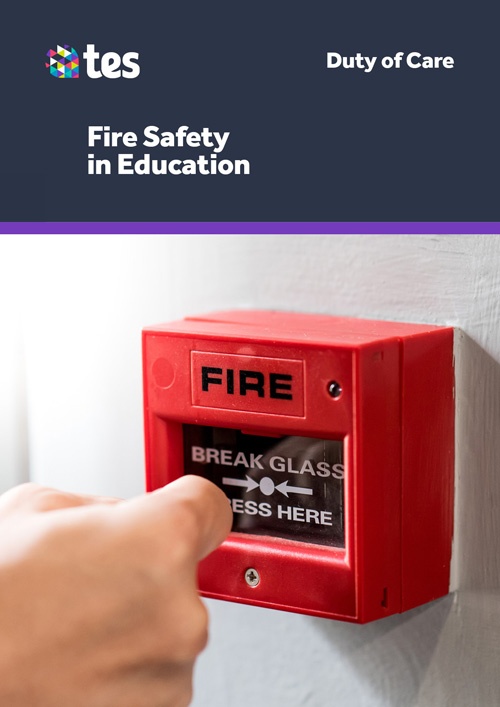
Fire Safety in Education
Fire Safety in Education provides the fundamental information needed to protect any education premises against fire.
Read more
How to be an Effective Fire Warden or Fire Marshal
This course is aimed at employees who undertake additional fire safety roles and responsibilities in the form of fire marshals or fire wardens as part of their daily duties.
Read moreFire Safety in Education
This four module course delivers four CPD hours and comprehensively covers:
- the importance of fire safety training including legislation
- the nature of the fire
- fire hazards
- what to do in the event of a fire
- how to use a fire extinguisher
How to be an Effective Fire Warden or Fire Marshal
This course covers:
- the importance of effective fire safety procedures
- the legal position and the requirement for effective safety management systems that demonstrate statutory compliance
- what should be included in a fire policy and procedure
- the systems required to ensure the safety of vulnerable people such as employees or visitors with disabilities
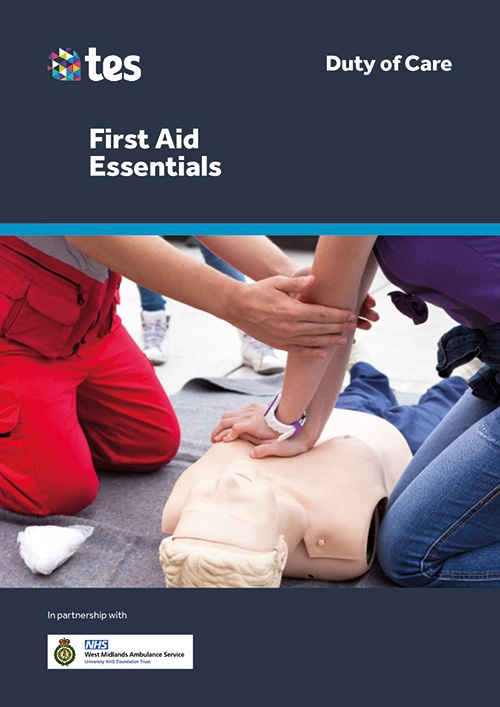
First Aid Essentials
First Aid Essentials aims to give the confidence needed to react in an incident when someone urgently needs help.
Read more_500.jpg)
Health and Safety in Education: Staff Awareness
This course is aimed at those who work within any educational establishment.
Read moreFirst Aid Essentials
This three module course delivers three CPD hours and comprehensively covers:
- providing basic life support
- how to react in life threatening situations
- how to deal with someone who is choking, drowning, seizing, bleeding or having an allergic reaction
- what to do if somebody has a broken bone or experienced a burn
- how to handle day-to-day incidents such as nose bleeds, insect bites, stings, sprains and strains and sunburn
Health and Safety in Education: Staff Awareness
This course covers:
- The legal position and who enforces health and safety law in the UK.
- Health and Safety policies and procedures.
- Risk assessments - including the HSE’s 5-step process for undertaking them.
- The importance of communication, co-operation, co-ordination and consultation in your organisation.
- Statutory inspection, maintenance and monitoring of systems and equipment.
- Specific health and safety considerations including fire/emergency procedures, first aid, display screen equipment, working at height, manual handling, hazardous substances, electricity, welfare, asbestos, water hygiene and lone working.
�
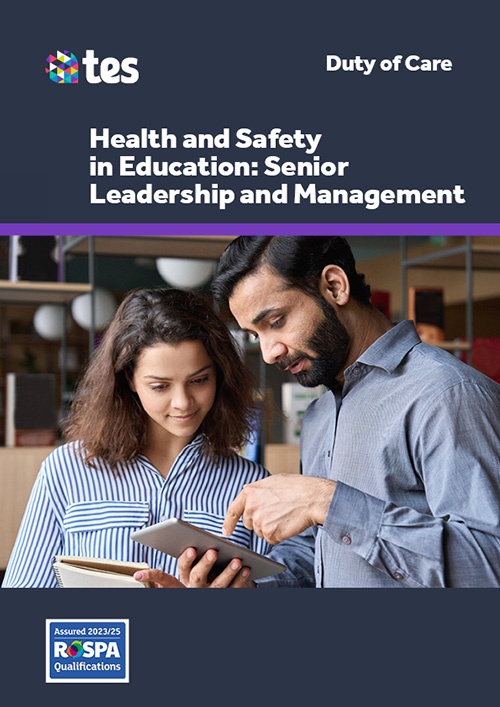
Health and Safety in Education: Management Team
This specific course is aimed at Senior leadership teams who are looking to set up Health and Safety Executive compliant systems policies and procedures for their staff.
Read more
Equality & Diversity
This two module interactive course is for all employers and employees who would like to learn about what Equality and Diversity policies are and what implementing them looks like in an organisation.
Read moreHealth and Safety in Education: Management Team
This course covers:
- Recent health and safety statistics.
- Statutory compliance - the legal framework and who enforces health and safety law in the UK.
- Leadership and governance arrangements for managing health and safety, using the Plan, Do, Check, Act process.
- Policies and procedures.
- Performance management and monitoring to ensure systems remain effective and highlight gaps in performance.
- The importance of staff training to embed a health and safety culture.
- Risk assessments including the HSE’s 5-step process.
Equality & Diversity
This two module course delivers two CPD hours and comprehensively covers:
- what equality and diversity mean and how they affect you
- barriers that can prevent equality from being realised such as prejudice, stereotyping, discrimination, victimisation and harassment
- key legislation and both employer and employees’ responsibilities in relation to it
- the Equality Act 2010 and the ‘protected characteristics’ that form the basis of the law
_500.jpg)
Moving and Handling
This course is aimed at employees who undertake moving and handling inanimate objects as part of their daily activity.
Read more
Food Hygiene and Safety
This Food Hygiene & Safety course is specifically designed for those who prepare and handle food.
Read moreMoving and Handling
This course can be used as part of an employee’s induction programme, as a demonstration of employee theoretic competency and/or as refresher training.
The aim of the course is to guide you through:
- the legal position
- appreciating the costs related to moving and handling injuries
- the TILE assessment process
- understanding and appreciating the principles of safe lifting techniques
- identifying effective control measures that can be used to reduce the risk of injury
- supporting your
organisation to develop a positive health and safety culture, with the application of a sensible proportionate approach.
Food Hygiene and Safety
This four module course delivers five CPD hours and comprehensively covers:
- how bacteria can cause food-borne illness
- recognising high risk foods and food allergies
- contamination and food spoilages and how to control it
- effective hygiene
- the importance of storage
- HACCP and the law
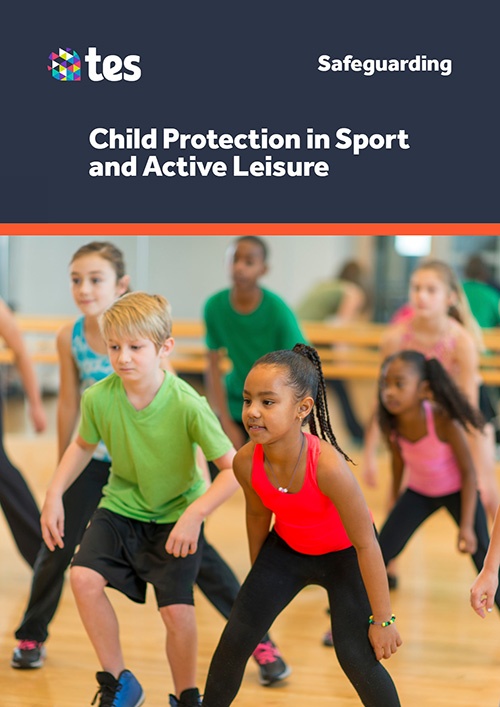
Child Protection in Sport & Active Leisure
Encouraging children and young people to participate in sport or physical activity has countless benefits, ranging from improved physical and mental health to promoting friendships and building confidence. Voluntary organisations, and public and private sector providers play an important role. Anybody involved in organising, delivering or supervising sport and active leisure activities has a responsibility for child protection.
Read more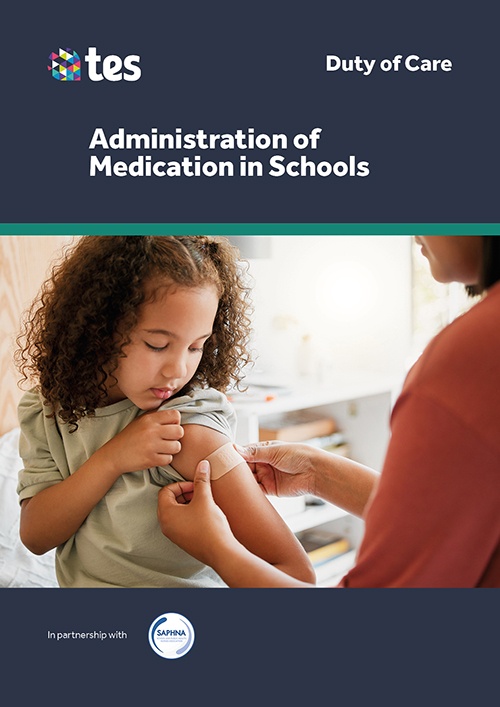
Administration of Medication in Schools
Schools and early years settings must have a policy and procedures in place for the administration of medication to children and young people. This course contains statutory and non-statutory guidance on the operation of such a system and the responsibilities of staff and parents.
Read moreChild Protection in Sport & Active Leisure
This course will help to raise your awareness of abuse and neglect, to recognise early signs that might indicate a problem and show you how to take action if you know or suspect that a child or young person needs help.
This CPD training and is also endorsed by Kidscape and Family Lives who are leading experts in child protection.
This
- child development
- categories of child abuse
- responding to abuse and creating a safe environment
Administration of Medication in Schools
The purpose of this course is to help you understand:
- The laws that apply to the administration of medication
- The principles for safe practice in administering medication
- The training requirements for schools, including how to administer prescribed medicine and awareness training for relevant medical conditions
- The requirements for record keeping, including consent forms and records of all medicines administered to individual children
- Planning for activities outside of school, such as school trips and residential visits
- The policies and procedures schools should have in place
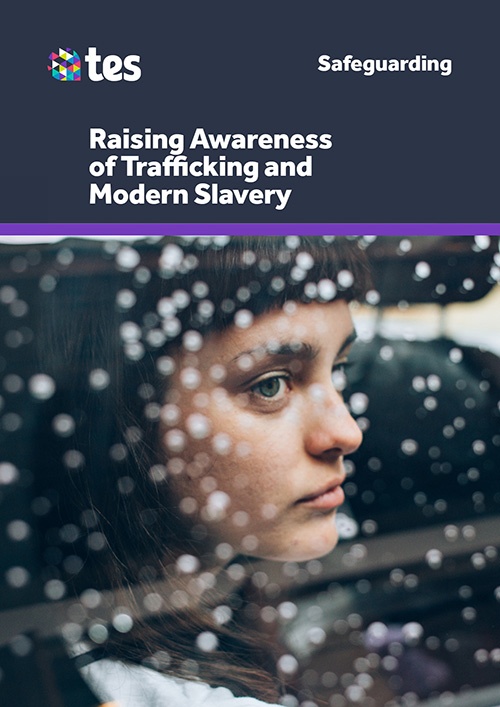
Raising Awareness of Trafficking and Modern Slavery
The term modern slavery acknowledges the fact that millions of people are still held in conditions of slavery and servitude globally – including in the UK. This course raises awareness of this issue.
Read more
Serious Youth Violence
The impact serious youth violence has on individuals and the community is significant. Written in partnership with The Children’s Society, this course raises awareness of this major issue.
Read moreRaising Awareness of Trafficking and Modern Slavery
The purpose of this course is to help you understand:
- What modern slavery and trafficking are
- Different types of trafficking
- Who trafficking affects
- The Modern Slavery Act 2015
- Internal trafficking and county lines
- How to spot the signs of trafficking
- How to report concerns about a trafficked child or adult
Serious Youth Violence
The purpose of this course is to help you understand:
- what is meant by the terms 'serious youth violence'
- how serious youth violence impacts upon communties
- what we already know about serious youth violence
- the vulnerabilities and risk factors that can lead to criminal exploitation
- the process of recruitment and the four main stages; targeting, experience, hooked and trapped
- child criminal exploitation, county lines and their definitions
- what a gang is and the terminologies such as 'gang', 'youth group' and 'serious organised crime group'
- further information on 'Organised Crime Groups' (OCG) and 'Serious Organised Crime Groups' (SOCG)
- details on a report from the Children's Commissioner
- it is estimated there are 27,000 children in England who self-identify as being gang members
- tens of thousands more are said to be on the periphery
- current statistics published by The Office of National Statistics
- the reasons why young people say they carry weapons and the different criminal offences associated
- contextual safeguarding and the importance of early intervention
- signs and behaviours to look out for and case studies
- next steps to take
_500.jpg)
Domestic Abuse: Children and Young People
Every day children and young people experience domestic abuse at home and can suffer a wide range of severe and long-lasting effects. The purpose of the course is to raise your awareness of children and young people who may be experiencing domestic abuse. Written in partnership with SafeLives, a national charity dedicated to ending domestic abuse.
Read more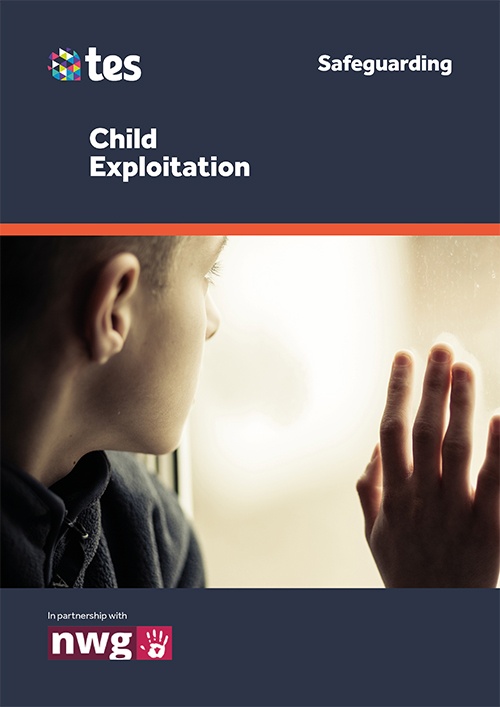
Child Exploitation
Child exploitation refers to a child or young person being used for someone else’s gain. Child exploitation is a form of abuse which can involve sexual, abusive or manipulative behaviour. The course is produced in partnership with NWG Network, a charitable organisation made up of thousands of practitioners. They offer support, advice and training and raise awareness of child exploitation.
Read moreDomestic Abuse: Children and Young People
The purpose of this course is to help you understand:
- What domestic abuse is and what forms it can take
- What controlling and coercive behaviour is
- The prevalence of domestic abuse
- They key risk factors to be aware of
- Some of the trigger events that can lead to violence
- The impact domestic violence can have
- What protective factors there are
- What to do when you suspect a child or young person is witnessing and/or experiencing domestic abuse
- What support, help and advice is available
Child Exploitation
This course covers:
- Models & forms of exploitation that a child or young person may be subjected to
- A scenario exploring an example case of exploitation
- Physical and psychological signs of exploitation
- Factors that can increase a person's vulnerability
- Short & long-term effects of exploitation and its impact on family members
- Barriers to disclosure
- What to do if you are worried about a child
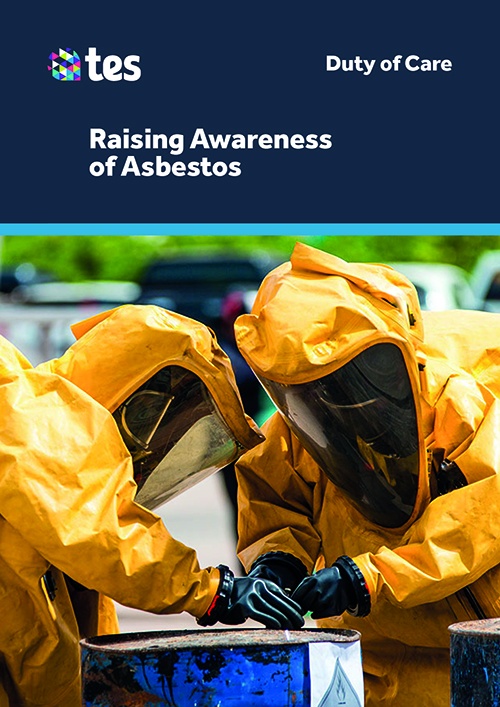
Raising Awareness of Asbestos
The purpose of this course is to help you understand what asbestos is, where it was used and the reasons why. It also covers asbestos regulation and good management for when asbestos is present.
Read more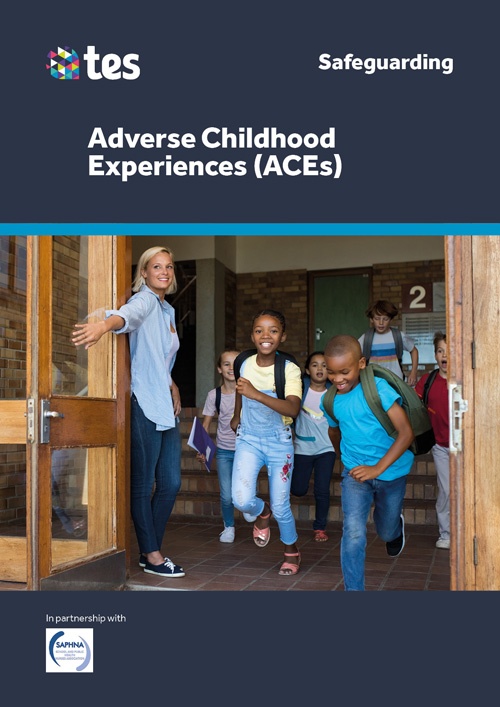
Adverse Childhood Experiences
The purpose of this course is to help you understand what adverse childhood experiences are and how they may affect children growing up. Using statistical evidence, the course also highlights the potential impact that ACEs can have in adulthood. Not everyone who has been exposed to ACEs will have negative outcomes, but understanding ACEs will help support the work and relationships you have with children.
Read moreRaising Awareness of Asbestos
This course covers:
- What asbestos is, its characteristics and where it is liekly to be found
- A look at the three main types of asbestos
- Common uses for asbestos
- When and why asbestos is a problem
- Useful statistics on asbestos from the Health and Safety Executive
- What the Control of Asbestos Regulations say
- The responsibilities of those in control or premises
- Details on what not to do when asbestos is present
- A look at property management and a useful checklist for managing anything asbestos-related
Adverse Childhood Experiences
The purpose of the course is to help you:
- understand what ACEs are & the two main categories
- understand trauma including the concept of 'Fight, Flight or Freeze' mode
- understand the term toxic stress and its effects on the developing brains of children and adolescents
- understand attachment theory and the differences between secure and insecure attachment in children
- be aware of the potential negative impact (supported by statistics) that being exposed to ACEs
- understand what the protective factors are
- understand what children and young people who experience trauma need to enable them to cope
- improve your listening skills to help you understand the child’s perspective and offer them appropriate support
- understand resilience and how working with parents can help a child become more resilient
- understand what you can do to help break the cycle of ACEs when working with children and families.

Supporting Staff Wellbeing in Schools Online Course
Staff wellbeing is of critical importance to schools, and whether you want to focus on your own wellbeing or are looking out for your colleagues, you will find information, guidance and support in this course. It considers the meaning of wellbeing, its impact on individuals and the workplace, common mental health issues and the causes of work-related stress. The course also explores what positive staff wellbeing means in practice, and how you can help to create it for yourself and your school.
Read more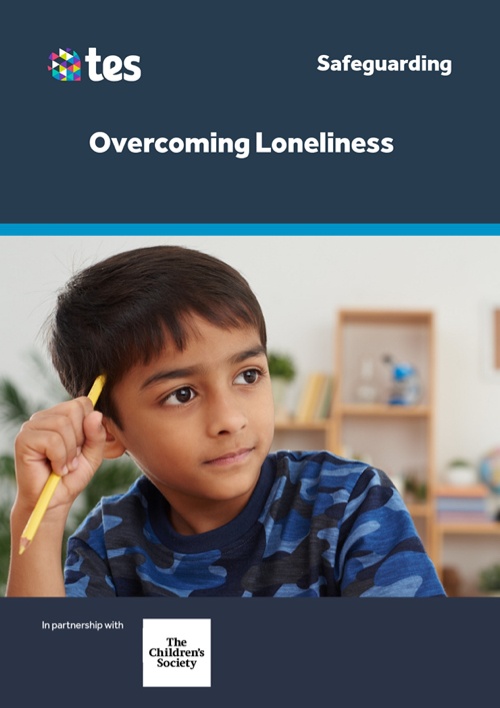
Overcoming Loneliness Online Course
Loneliness can affect anyone from any background at any time of their life. It is often associated with the elderly, but children and young people also become lonely and isolated. This course is written in partnership with The Children’s Society, a national charity that works with the country’s most vulnerable children and young people. It will help you to understand what is meant by loneliness, the triggers for loneliness and how it can affect children or young people. Also included are ideas for helping children and young people overcome loneliness and where to go for further support.
Read moreSupporting Staff Wellbeing in Schools Online Course
Staff wellbeing is of critical importance to schools, and whether you want to focus on your own wellbeing or are looking out for your colleagues, you will find information, guidance and support in this course. It considers the meaning of wellbeing, its impact on individuals and the workplace, common mental health issues and the causes of work-related stress. The course also explores what positive staff wellbeing means in practice, and how you can help to create it for yourself and your school.
Overcoming Loneliness Online Course
This
- The key transitional times
- What does loneliness mean?
- Vulnerable groups
- The effects of loneliness
- Overcoming loneliness
- Support & reflective summary
- Triggers for loneliness
- What we know about loneliness

Harmful Sexual Behaviours
Professionals can feel anxious about discussing the topic of sexual behaviour in children and young people. This course will help to increase your confidence in distinguishing between healthy and harmful sexual behaviour. It gives an overview of how to respond to demonstrations of harmful sexual behaviour in children and young people, and shows that a whole school or college approach encourages healthy relationships and helps to prevent harmful sexual behaviour. The course is written in partnership with Brook, a leading charity in providing wellbeing and sexual health support to professionals and young people, and includes a link to the Brook Sexual Behaviours Traffic Light Tool.
Read more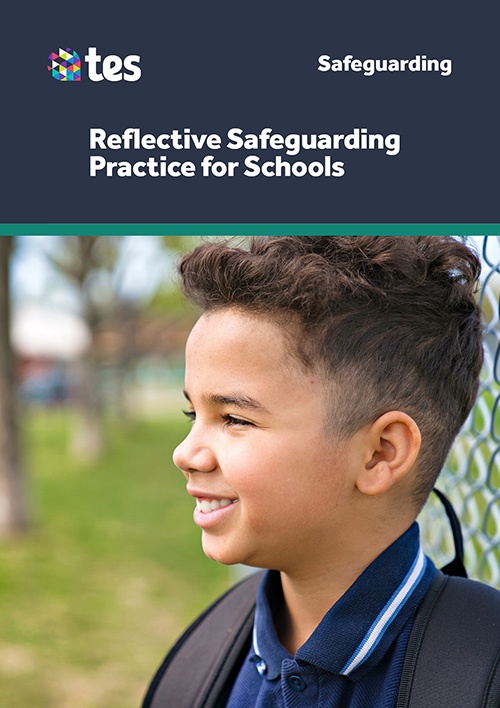
Reflective Safeguarding Practice for Schools
Reflective practice allows you to recognise and reflect on your experiences in order to learn from them and improve the way you work. This course uses scenarios for you to reflect on, thinking about actions that fit the policies for your own school. It will also encourage you to consider the safeguarding and child protection support services available.
Read moreHarmful Sexual Behaviours
This course comprehensively covers:
- Healthy sexual development
- Harmful sexual behaviour
- Prevalence and who is affected by harmful sexual behaviour
- Types of harmful sexual behaviours
- What is consent?
- Peer-on-peer sexual abuse in schools
- Recognising harmful sexual behaviour
- Case studies
- Why might a child exhibit harmful sexual behaviour?
- Managing harmful sexual behaviour
- The role of relationships and sex education (RSE)
- Support and signposting
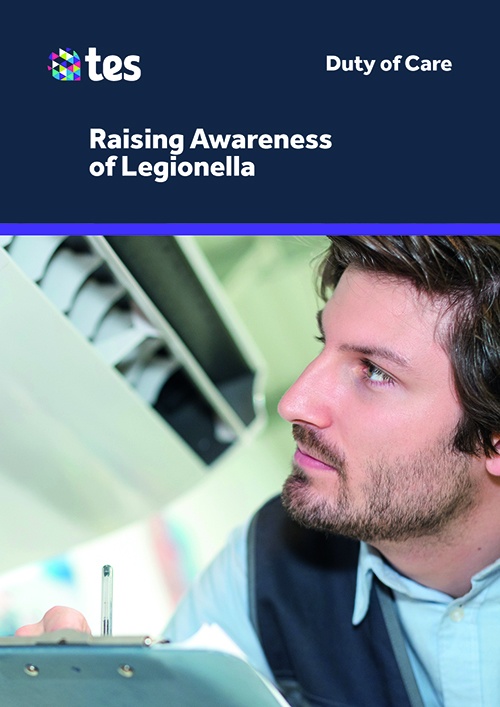
Raising Awareness of Legionella
This course raises awareness of the illnesses caused by the legionella bacteria, such as Legionnaires’ disease. If you have a responsibility for maintaining premises, it is your duty to understand and manage legionella risks. The course also covers how and why the bacteria can become dangerous and helps you to understand your responsibilities by looking at the risks and how to manage them.
Read more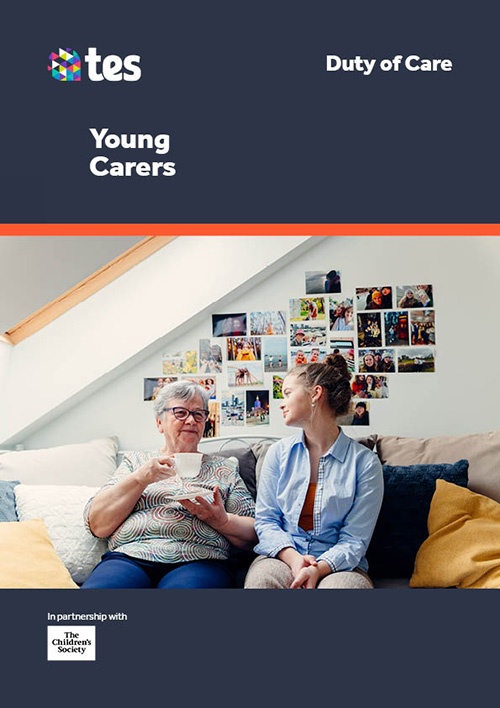
Young Carers Online Course
This course on ‘Young Carers’ will help you to understand who young carers are and what they do. You will learn about signs that might indicate someone is a young carer, and what their needs might be. The course looks at their rights in law and considers what support they need and how you can help. Scenarios and videos are used to provide useful insight into the lives of young carers. The course is written in partnership with The Children’s Society and uses insights and quotes throughout the course from young carers that they support.
Read moreRaising Awareness of Legionella
This course raises awareness of the illnesses caused by the legionella bacteria, such as Legionnaires’ disease. If you have a responsibility for maintaining premises, it is your duty to understand and manage legionella risks. The course also covers how and why the bacteria can become dangerous and helps you to understand your responsibilities by looking at the risks and how to manage them.
Young Carers Online Course
This
- Background - definitions & statistics of young carers
- Understanding the context of caring
- How to make a positive impact
- Legislation
- Understanding the needs of a young carer
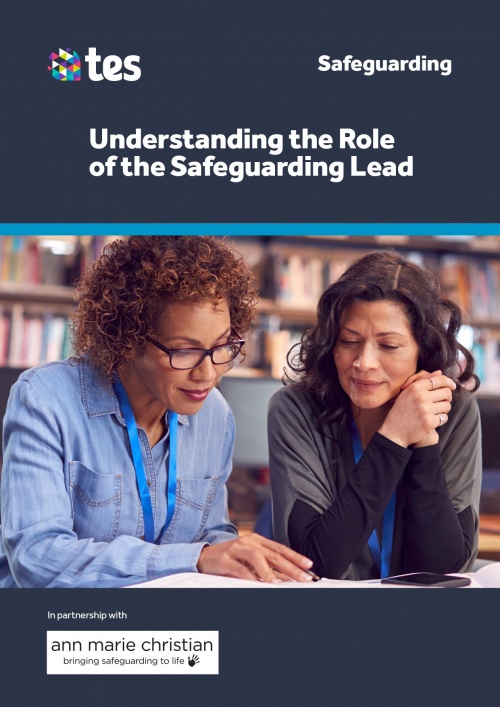
Understanding the Role of the Safeguarding Lead
Everyone working or volunteering in a school should be aware of the importance of the role of the safeguarding lead. Written in partnership with Ann Marie Christian, Safeguarding Expert, this course will help you understand the position in more detail and how it relates to your own role.
Read more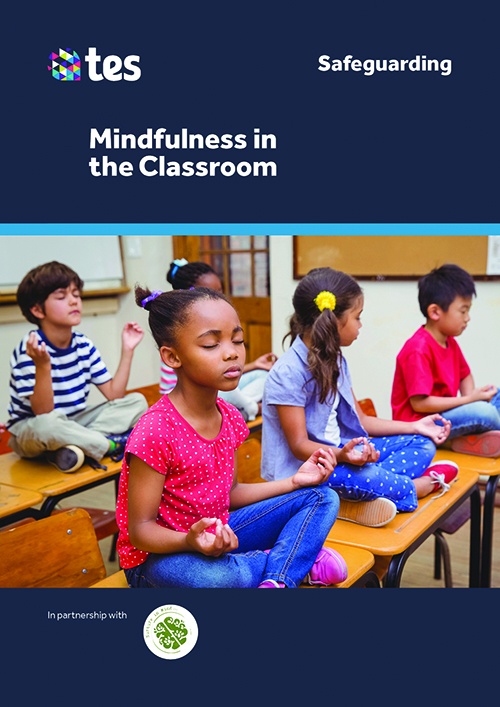
Mindfulness in the Classroom
This course introduces you to the concept of mindfulness, both as a personal practice, and in the classroom. You will increase your understanding and gain important and authentic first-hand experience. It will help you develop your confidence in delivering mindfulness within your own classroom to support both your own wellbeing and that of your pupils.
Read moreUnderstanding the Role of the Safeguarding Lead
Everyone working or volunteering in a school should be aware of the importance of the role of the safeguarding lead. Written in partnership with Ann Marie Christian, Safeguarding Expert, this course will help you understand the position in more detail and how it relates to your own role.
Mindfulness in the Classroom
This course introduces you to the concept of mindfulness, both as a personal practice, and in the classroom. You will increase your understanding and gain important and authentic first-hand experience. It will help you develop your confidence in delivering mindfulness within your own classroom to support both your own wellbeing and that of your pupils.
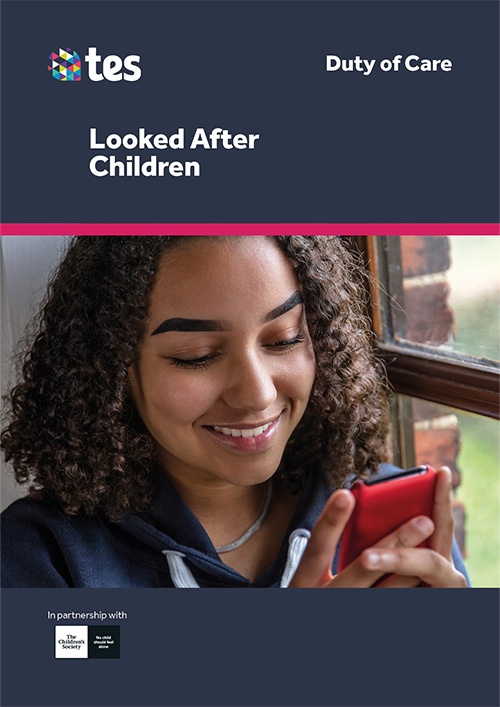
Looked After Children
Written in partnership with The Children’s Society, this course will help you to understand more about looked after children. It explains who they are, their needs and their rights in law. You will learn about the negative impact of being a looked after child and the positive difference that you can make. The course includes suggestions for supporting looked after children both in and out of school.
Read more_500.jpg)
Managing Allegations of Abuse Against Staff
Child abuse often goes unrecognised and all staff and volunteers in a school or college should know what to look out for and how to report concerns. Written in partnership with Ann Marie Christian, Safeguarding Expert, this course looks at the importance of being alert and what to do if you have a concern, doubt or worry about a colleague’s behaviour, motivations or intentions. You will learn what happens when an allegation is made and the potential outcomes. A variety of case studies help you apply your learning to potential real-life scenarios.
Read moreLooked After Children
Written in partnership with The Children’s Society, this course will help you to understand more about looked after children. It explains who they are, their needs and their rights in law. You will learn about the negative impact of being a looked after child and the positive difference that you can make. The course includes suggestions for supporting looked after children both in and out of school.
Managing Allegations of Abuse Against Staff
Child abuse often goes unrecognised and all staff and volunteers in a school or college should know what to look out for and how to report concerns. Written in partnership with Ann Marie Christian, Safeguarding Export, this course looks at the importance of being alert and what to do if you have a concern, doubt or worry about a colleague’s behaviour, motivations or intentions. You will learn what happens when an allegation is made and the potential outcomes. A variety of case studies help you apply your learning to potential real-life scenarios.
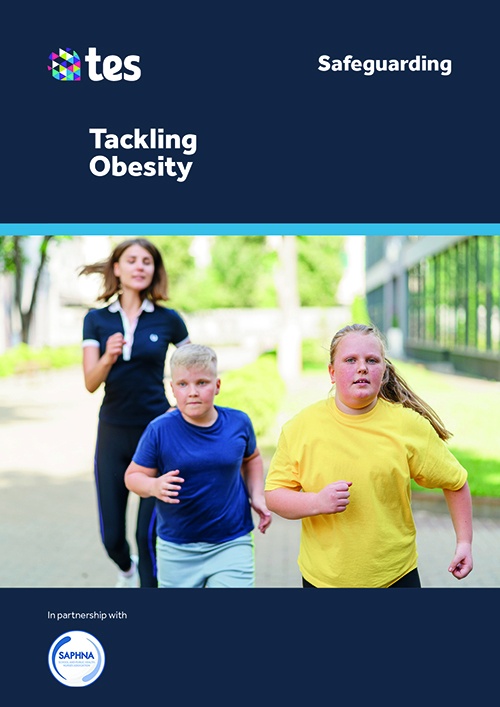
Tackling Obesity
Childhood obesity is one of the most serious public health challenges of the 21st century. This course explores the reality of the issue by looking at the causes, the risks, and the cost to individuals and society. You will learn about the strategic approach taken by government and schools, and how you can support the children and young people with whom you work to prevent and tackle obesity.
Read more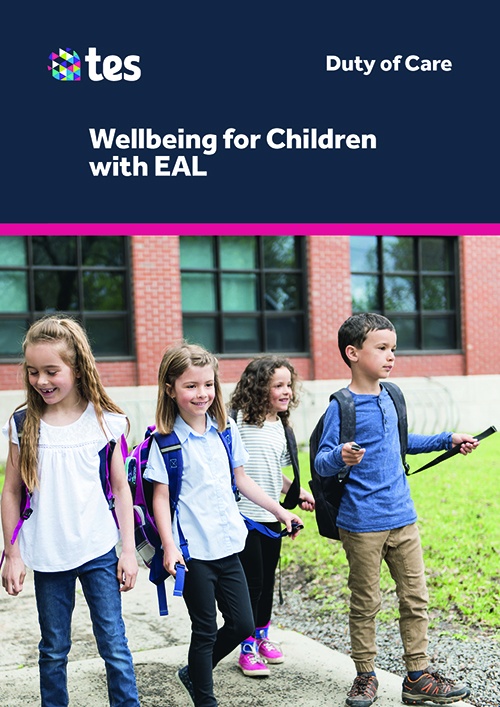
Wellbeing for Children with EAL
The aim of the course is to increase your awareness of the needs of children with EAL (English as an Additional Language). It focuses on safeguarding and wellbeing and gives suggestions on providing an inclusive environment for all children and young people.
Read moreTackling Obesity
Childhood obesity is one of the most serious public health challenges of the 21st century. This course explores the reality of the issue by looking at the causes, the risks, and the cost to individuals and society. You will learn about the strategic approach taken by government and schools, and how you can support the children and young people with whom you work to prevent and tackle obesity.
Wellbeing for Children with EAL
The aim of the course is to increase your awareness of the needs of children with EAL (English as an Additional Language). It focuses on safeguarding and wellbeing and gives suggestions on providing an inclusive environment for all children and young people.
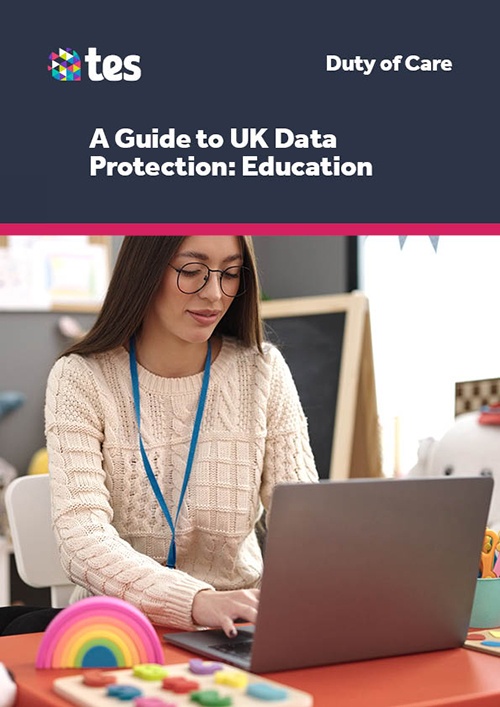
A Guide to UK Data Protection : Education
Data protection issues are increasingly at the forefront of people’s minds because the consequences of getting it wrong are very serious. Endorsed by 9ine, specialists in data protection, this course will give you a firm understanding of the principles of data protection, as well as acquaint you with the essential requirements in your school.
Read more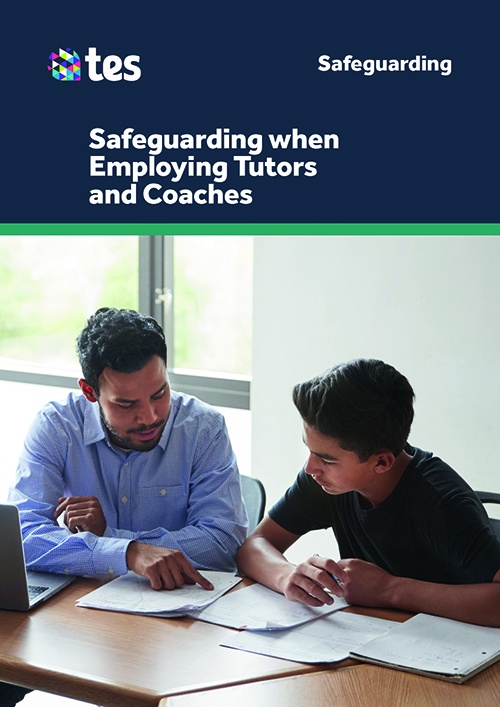
Safeguarding when Employing Tutors and Coaches
This course is for those working in an education setting that employs tutors and coaches of any discipline. It outlines key safeguarding measures for multiple teaching environments, so that you can protect the children and young people with whom you work. It includes important information about the recruitment process, data protection, health and safety, child protection, online safety procedures, and good practice.
Read moreA Guide to UK Data Protection : Education
This course will give you a firm understanding of the principles of data protection, as well as acquaint you with the essential requirements in your school.
Safeguarding when Employing Tutors and Coaches
This course is for those working in an education setting that employs tutors and coaches of any discipline. It outlines key safeguarding measures for multiple teaching environments, so that you can protect the children and young people with whom you work.
It includes important information about the recruitment process, data protection, health and safety, child protection, online safety procedures, and good practice.
_500.jpg)
Infection Prevention and Control in Education
Schools are common sites for the transmission of infections. Everyone who works in an education setting has a duty of care to their colleagues, and the children and young people in their care, to reduce this risk. With the advent of the Covid-19 pandemic, it has never been more important to have a refresher on the principles and practice of infection prevention and control.
Read more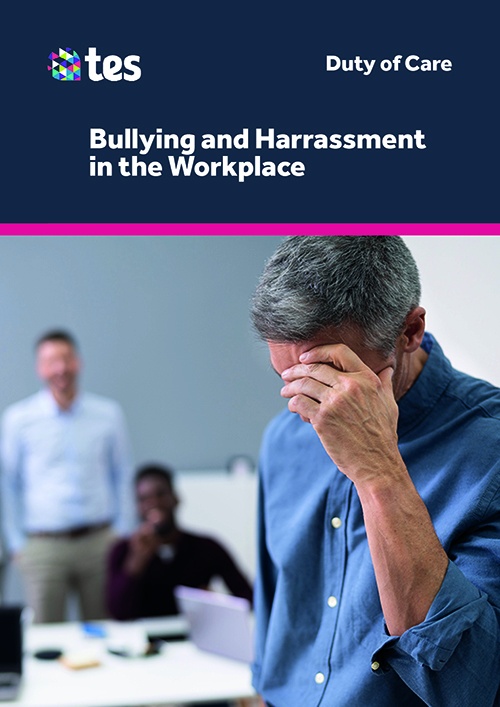
Bullying and Harassment in the Workplace
Bullying does not only affect children and young people; it can also be a very real concern in the workplace. The aim of this course is to raise awareness of the issue by including scenarios to show the impact of bullying and harassment on individuals and organisations. It gives practical suggestions for creating a friendly and inclusive workplace where bullying and harassment are not tolerated.
Read moreInfection Prevention and Control in Education
In this course you will learn how infections are transmitted and the steps that you can take to prevent this happening. It also includes measures to control infection should it occur. This course was written in partnership with the School and Public Health Nurses Association (SAPHNA).
Bullying and Harassment in the Workplace
This one
- What is bullying?
- The law relating to bullying and harassment
- The impact of bullying and harassment
- Types of bullying
- Signs of bullying and harassment
- Addressing bullying and harassment
- Where to go for advice and support
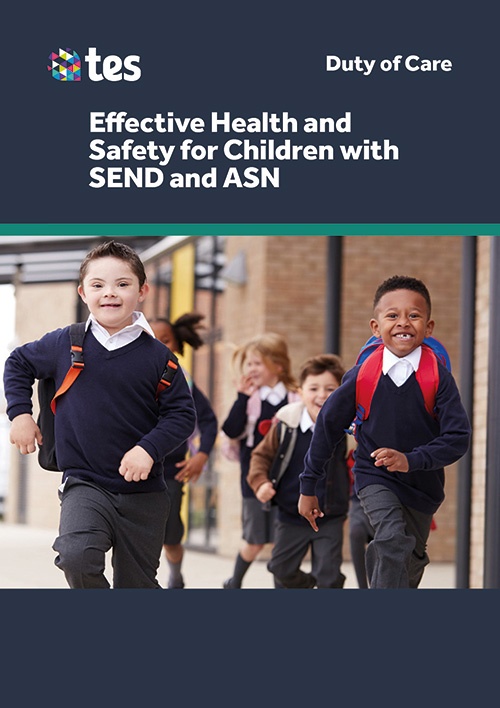
Effective Health and Safety for Children with SEND and ASN Online Course
All children and young people have a right to education, regardless of any special educational needs or disability (SEND) or additional support needs (ASN). This course will help you to understand your legal obligations regarding the health and safety of those with SEND and ASN.
Read more
Parental Responsibility in Schools
This course will help you to understand your obligations and duties in relation to the rights and responsibilities of parents. It references the law and government guidance and offers a range of scenarios for your consideration.
Read moreEffective Health and Safety for Children with SEND and ASN Online Course
This course comprehensively covers:
- Legislation and guidance
- Managing risk
- Reasonable adjustments
- Moving and handling
- Other considerations
- Emergency procedures
Parental Responsibility in Schools
This course covers:
- The legal definition of a parent under family and education law
- An overview of parental rights and responsibilities
- Scenarios to establish who has parental responsibilities
- Examples of how court orders are used to resolve disputes
- Schools' legal requirements in relation to the admission register
- Communication between schools and parents, with real-life situations for discussion
- Dealing with conflict between parents and complaints
- Information on surname changes, safeguarding and additional support
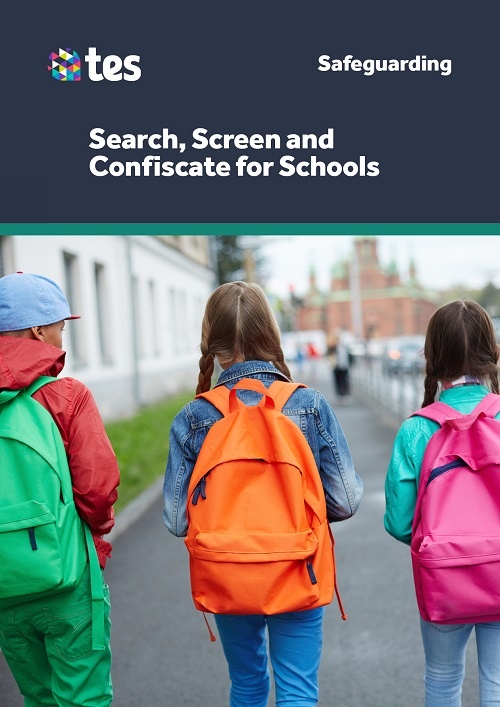
Search, Screen and Confiscate for Schools
Schools have a responsibility under health and safety legislation to minimise risks to pupils, staff and visitors, and they have statutory powers to make rules about pupil behaviour to facilitate this. Both searching and screening contribute to the safety of the school by enabling staff to identify and remove prohibited items such as weapons and alcohol.
Read more_500.jpg)
Risk Assessments for School Trips
Schools have been organising and delivering successful educational visits and trips for many years. This course has been written in partnership with health and safety experts to help you develop risk assessments that are sensible and proportionate for the level of risk presented during the trip.
Read moreSearch, Screen and Confiscate for Schools
This course covers:
- who can search and when?
- what you can search for the consent and without consent
- the statutory prohibited items
- items the school can ban at their own discretion
- examples of reasonable grounds for conducting a search
- the extent to which the staff can search
- how to conduct a search
- what to do if a pupil refuses to co-operate with a search
- different types of screening
- what staff should do with confiscated items
- what to do with electronic devices found during a search
- recording and reporting searches
- what the law says about searching, screening and confiscation
- good practice
Risk Assessments for School Trips
This course covers:
- the legal position for educational visits and their requirements
- parental consent
- policy, procedures and competency
- the risk assessment process
- the terminology used
- other factors to be considered
- what should be in place when using partnership, host organisations and tour operators
- the importance of carrying out the required research
- the evaluation and debrief process
- contingency planning in the event of something going wrong

Anti-Fraud, Bribery and Corruption
According to the National Crime Agency, fraud is the most commonly experienced crime in the UK. The impact isn’t simply a financial cost for big organisations; fraud has devastating physical, psychological and social effects on individuals, families and communities. By finding out more about fraud, bribery and corruption, you can help to reduce them, and keep yourself and your organisation safe.
Read more
Cyber Security
Fraud and cyber-crime are the country’s most common offences and the biggest threat to national security. Many organisations become victims of cyber-crime because of human error, just not thinking or people not following the correct protocol. This course will help you understand the best practice to minimise the risk of a cyber-attack.
Read moreAnti-Fraud, Bribery and Corruption
Anti-Fraud, Bribery and Corruption
This one-module, CPD-acredited course covers:
- What fraud, bribery and corruption are, and what form they can take
- Being aware of the increased risk factors in organisations and industries
- Examples of common types of fraudulent activities
- The prevention and detection measures everyone must take
- How to report a suspected fraud
- Scenario examples of fraud, bribery and corruption
- Further information on the organisations you can contact for help and advice
Cyber Security
Cyber Security
This one-module, CPD-acredited course covers:
- Risk in the online world
- Understanding what a cyber attack is
- Understanding what information needs protection
- The effects of cyber-crime
- Understanding the types of cyber-attack
- Understanding the cyber security policies your organisation should have in place
- The steps you can take to minimise the risk of a cyber-attack
- Guidance on the detection and reporting of cyber-crime
- Information on the support available
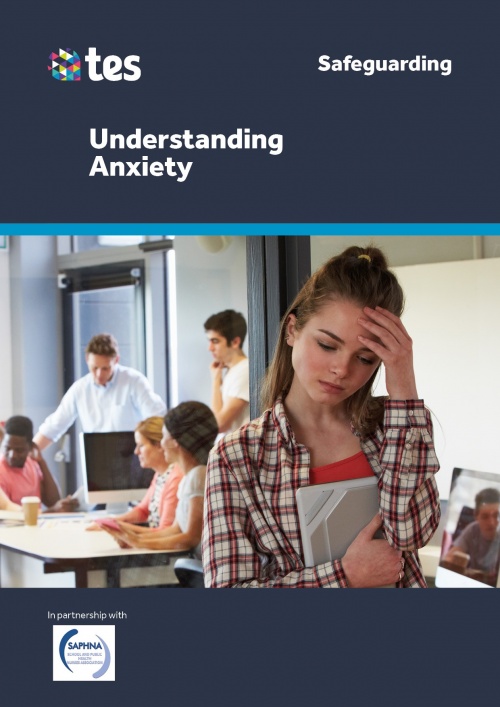
Understanding Anxiety
The purpose of this course is to help you support children and young people who may be experiencing anxiety.
Read more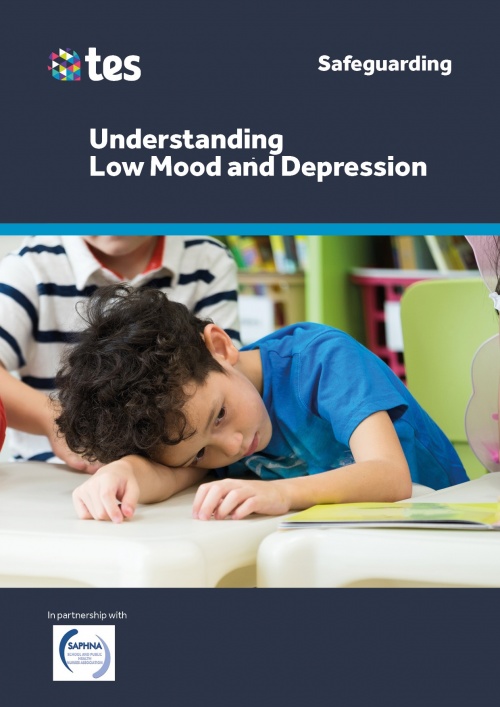
Understanding Low Mood and Depression
The purpose of this course is to help you support children and young people who may be experiencing low mood or depression.
Read moreUnderstanding Anxiety
Understanding Anxiety
This one module course delivers one CPD hour and comprehensively covers important aspects of anxiety such as:
- the types of anxiety and common causes
- symptoms which a young person may experience both physically and psychologically
- the typical signs of anxiety to look out for in a child or young person
- the common triggers for anxiety
- panic attacks and the typical symptoms people may experience and exercises on how to reduce them
- why someone may be suffering from anxiety and suggested self-help methods
- other support methods you can offer someone suffering from anxiety
- further support on anxiety (e.g. services and helplines available)
Understanding Low Mood and Depression
Understanding Low Mood and Depression
This one module course delivers one CPD hour and comprehensively covers important aspects of low mood and depression such as:
- the difference between low mood and depression
- the main causes and indicators of low mood and depression
- the signs and symptoms of low mood and depression
- specific types of depression and the conditions of events related to them
- ways in which you can help and support people dealing with low mood and depression
- support available for people dealing with low mood and depression
- ways to communicate with people suffering from low mood and depression
- further help and support available (e.g. helplines and urgent support services)
_500.jpg)
Understanding Self-Harm
The purpose of this course is to help you understand what self-harm is, why someone self-harms and how to support the individual.
Read more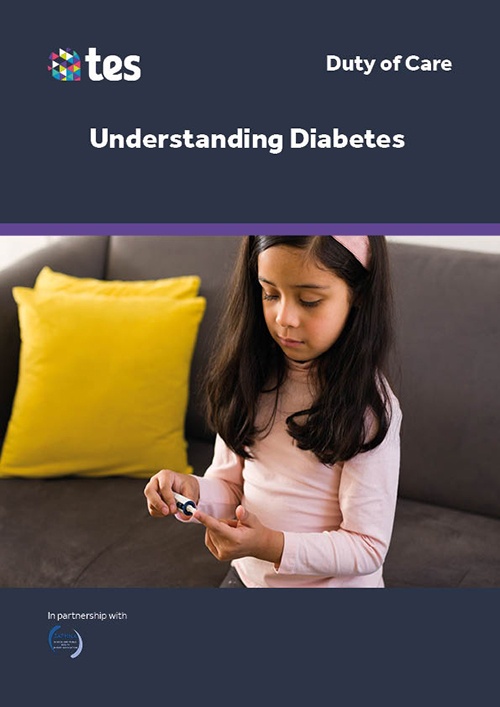
Understanding Diabetes
This course contains information on the signs and symptoms of both diabetes type 1 and 2 and provides specific first aid information for both adults and children suffering from the different types of diabetes. Course developed in partnership with SAPHNA.
Read moreUnderstanding Self-Harm
Understanding Self-Harm
This one module course delivers one CPD hour and comprehensively covers important aspects of self-harm such as:
- what self-harm is and why people self-harm
- common triggers
- different types of self-harm
- indicators that someone may be self-harming
- the support in place to help someone who is self-harming
- ways of accessing support for someone who is self-harming
- further support on self-harm (e.g. services and helplines)
Understanding Diabetes
Understanding Diabetes
This one module course delivers one CPD hour and comprehensively covers:
- a look at the two types of diabetes
- information on the signs and symptoms of both types
- useful management and treatment of diabetes
- further information that details number of apps available on NHS website
- specific first aid information for both adults and children
- important information on the treatment of a diabetic emergency
- procedures for emergency medication
- further information for schools
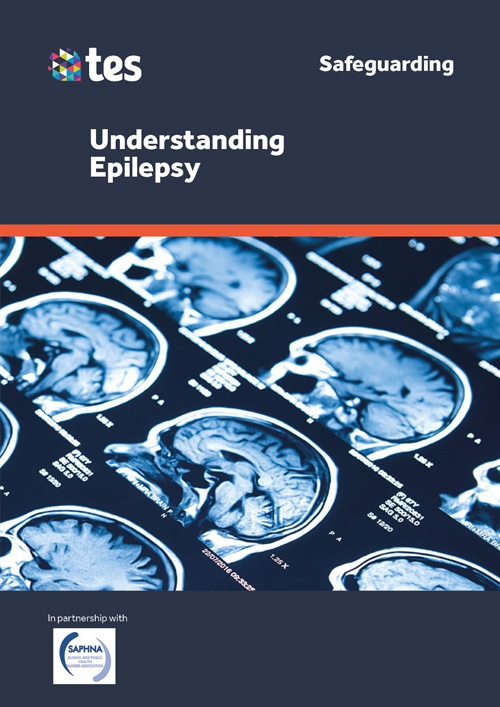
Understanding Epilepsy
This course will help you to understand epilepsy, a lifelong condition that affects around 600,000 people in the UK. Course developed in partnership with SAPHNA.
Read more_500.jpg)
Understanding Anaphylaxis
This course looks at what anaphylaxis is and possible signs and symptoms of someone suffering from an anaphylactic reaction. Course developed in partnership with SAPHNA.
Read moreUnderstanding Epilepsy
Understanding Epilepsy
This one module course delivers one CPD hour and comprehensively covers:
- what eilepsy is and how it affects the electrical activity in the brain
- details on what eplipetic seizures are and their different types
- information on common triggers
- useful list of drugs and medications availabke to help control seizures
- information on other treatments for epilepsy
- information on first aid treatment to help reduce the risks during a seizure
- emergency procedures
Understanding Anaphylaxis
Understanding Anaphylaxis
This one module course delivers one CPD hour and comprehensively covers:
- what anaphylaxis is, along with common causes
- possible signs and symptoms of someone suffering
with anaphylaxis - a look at different treatments for anaphylaxis
- information on dealing with anaphylaxis
- how to reduce the risk of anaphylaxis
- information on alternative medication
- emergency procedures
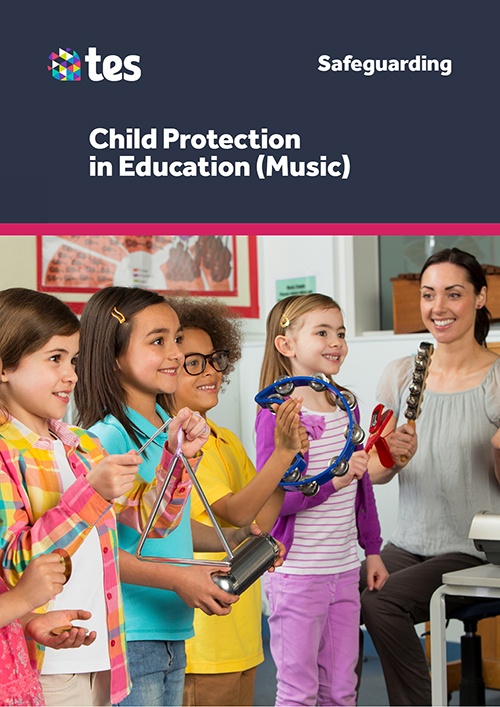
Child Protection in Education (Music)
Child Protection in Education (Music), developed by the Musicians' Union, is for those who work with children and young people in a music setting.
Read more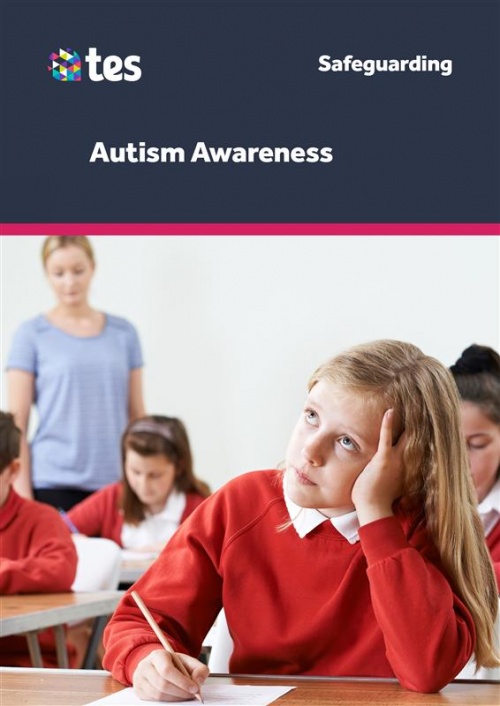
Autism Awareness
This course provides an overview of Autism for those that work with children and young people in education. It covers what autism is, its prevalence and causes, how it is diagnosed and the implications for pupil learning.
Read moreChild Protection in Education (Music)
This five module course delivers five CPD hours and covers:
- what forms child abuse can take (including other harms such as FGM, forced marriage and sexual exploitation) and the effect it can have
- extremism, radicalisation, and the Prevent duty
- signs that may mean a child is suffering abuse and how to respond if a child confides in you
- processes for reporting abuse
- the child protection system
Autism Awareness
After completing this course you will:
- understand what autism is
- know the terminology used to describe autism
- learn about the prevalence of autism
- understand how autism is diagnosed
- be able to identify the indicators that may suggest the presence of autism
- recognise the ways that autism can affect learning
- understand how to report concerns about autism
- have learnt tips for an autism-friendly approach in classroom environments.
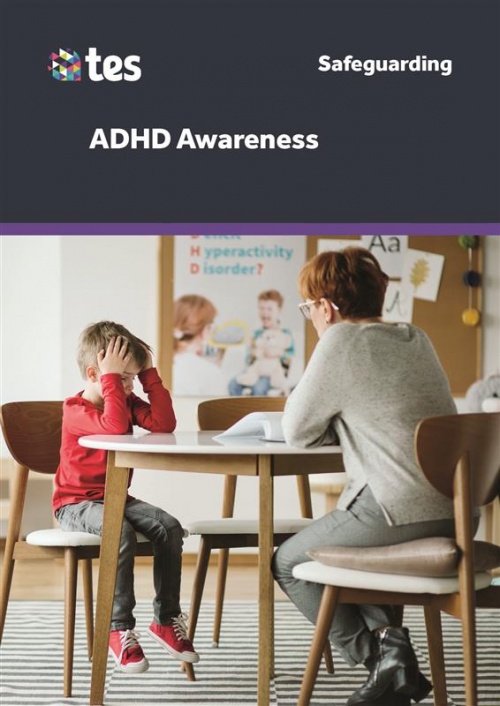
ADHD Awareness
This course provides an overview of ADHD for those that work with children and young people in education.
Read more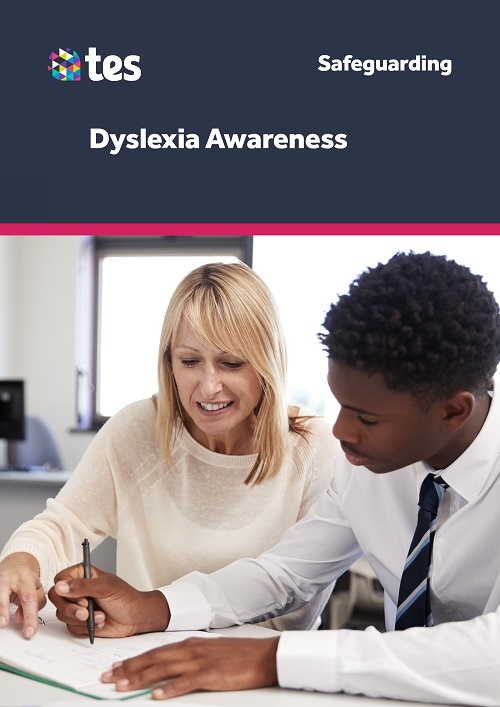
Dyslexia Awareness
This one module interactive course is for anyone who works with children and young people in education settings.
Read moreADHD Awareness
By the end of this course you will:
- know what ADHD is
- be able to recognise the cause, prevalence and symptoms of ADHD
- understand how ADHD is treated
- be aware of how to report concerns about ADHD
- know how ADHD can affect learning
- learn practical tips to support those with ADHD
Dyslexia Awareness
This one module interactive course is for anyone who works with children and young people in education settings.
It aims to improve your understanding and approach to young people with dyslexia in a classroom environment.
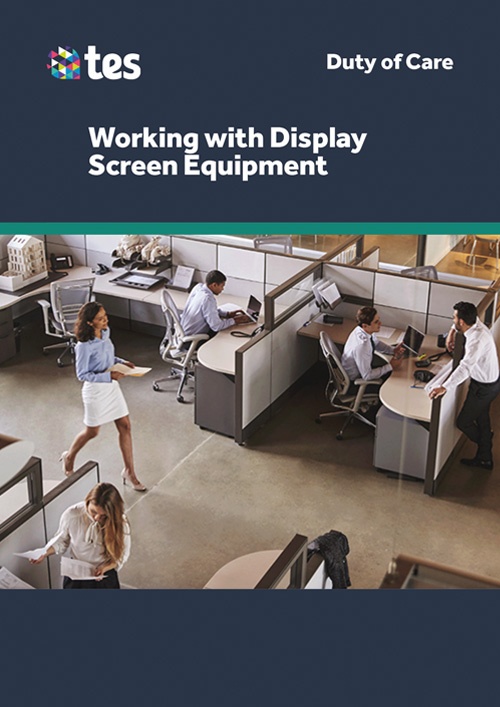
Working with Display Screen Equipment
Display screen equipment (DSE) is common throughout the workplace. Regulations apply to those who work with DSE as a significant part of their normal work. We trust that you will find the information in this course useful in your work and daily life.
Read more_500.jpg)
Risk Assessments in Educational Settings
Written in partnership with Foresight Health and Safety, this risk assessment course can be used by anyone working in education settings with children and young people.
Read moreWorking with Display Screen Equipment
This one module course delivers one CPD hour and comprehensively covers:
- what display screen equipment is and the risks
in using it improperly - your employer’s duties under the Health and Safety (Display Screen Equipment) Regulations 1992
- what you should do to ensure your health and safety when using display screen equipment
Risk Assessments in Educational Settings
Written in partnership with Foresight Health and Safety, this risk assessment course can be used by anyone working in education settings with children and young people.
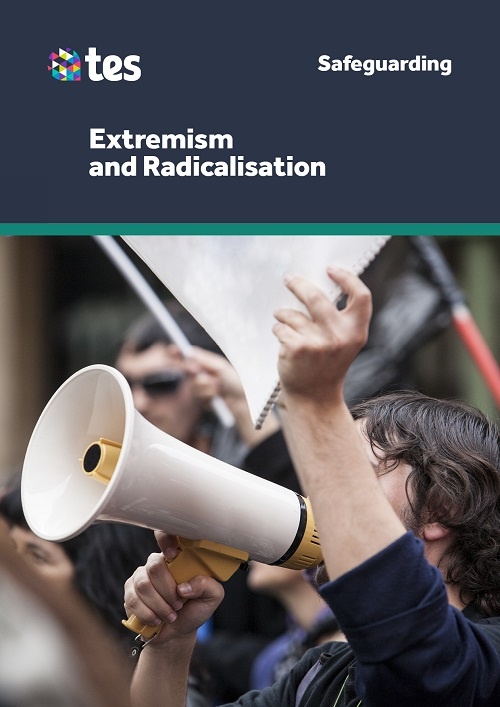
Extremism and Radicalisation
This one module interactive course is for anyone who works with children and young people in education settings. It aims to improve your understanding and approach to extremism and radicalisation, which is an evolving and increasingly pervasive issue facing schools. The course outlines key definitions and specific issues about the radicalisation of young people, including warning signs, risk factors, protective factors, and grooming. It also includes guidance on distinguishing hate speech from acceptable speech, including on school grounds, as well as providing information about online hate speech, both on mainstream social media and via less traditional channels. Scenarios throughout aid understanding and embed learning. Towards the end, this course also provides insights into promoting good general practice in your own school, and covers key support and signposting, the Prevent duty, and other practical online safety and media literacy measures that could be implemented.
Read more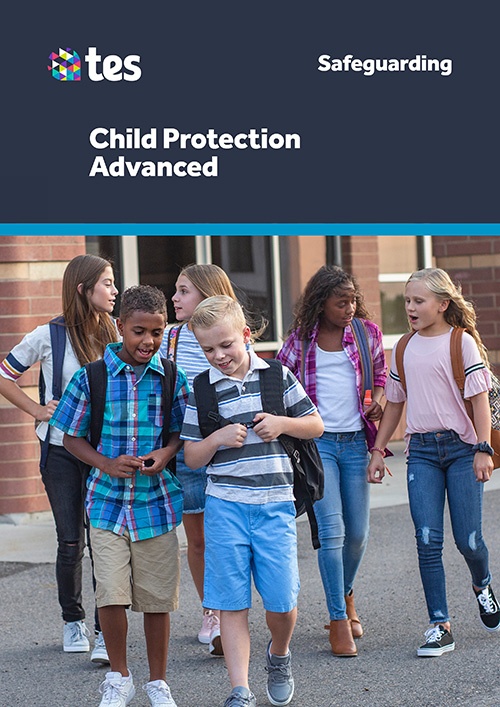
Child Protection Advanced Online Course
This course is for anyone who has previously completed a foundation child protection programme and wants to learn about the subject of safeguarding children and young people in greater detail. Modules cover a range of subjects from child development, risk factors and forms of abuse, to significant case reviews, the legal framework and promoting good practice. Upon completion of this course, you will have learned about the importance of children’s developmental milestones and the different dimensions of child development, what abuse is, the different types of abuse and the effects it can have on children and young people. You will know what the signs and indicators of abuse are and what to do if a child discloses harm to you or you have suspicions of abuse. You will be aware of what happens after you or your safeguarding lead has reported abuse and you understand the principles of good practice as they apply to your organisation and to you as an individual.
Read moreExtremism and Radicalisation
This one module interactive course is for anyone who works with children and young people in education settings.
It aims to improve your understanding and approach to extremism and radicalisation, which is an evolving and increasingly pervasive issue facing schools.
Child Protection Advanced Online Course
The nine-module course delivers 9 CPD credits and covers:
- Child development
- Parenting and risk factors
- Forms of child abuse
- Specific Safeguarding Issues
- Recognising and Responding to Abuse
- Child Protection System
- Learning from Failure
- The Legal Framework
- Promoting Good Practice
_500.jpg)
Working with LGBTQ+ pupils in an educational environment
This course looks at how educational settings can provide an inclusive environment for children and staff. It provides information and understanding of LGBTQ+ identities within an education setting and stresses the importance of schools addressing LGBTQ+ issues including homophobic, biphobic and transphobic bullying.
Read more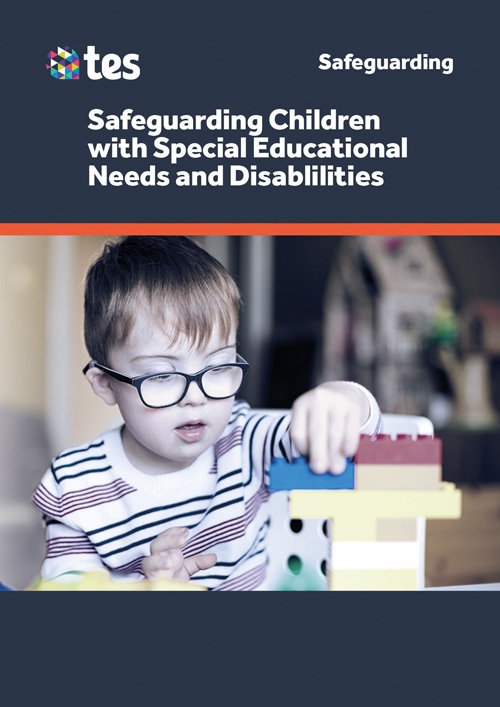
Safeguarding Children with Special Educational Needs and Disabilities
There are increasing numbers of children and young people with special educational needs attending mainstream education settings and this course will give you an understanding of how to safeguard them. It covers the legislation for the four nations of the United Kingdom and highlights the main vulnerability factors that mean these children are at the highest risk of abuse. Finally, it covers good practice and there are case reviews and two scenarios to work through.
Read moreWorking with LGBTQ+ pupils in an educational environment
This course looks at how organisations and schools can provide an inclusive environment for children and staff. It provides information and understanding on LGBT within an education setting and stresses the importance of addressing LGBT issues including homophobic, biphobic and transphobic bullying.
Safeguarding Children with Special Educational Needs and Disabilities
This course covers the legislation for the four nations of the United Kingdom and highlights the main vulnerability factors that mean these children are at the highest risk of abuse. Finally, it covers good practice and there are case reviews and two scenarios to work through.
_500.jpg)
Suicide Awareness and Prevention
This course reports the facts about suicide and suicidal thoughts in young people and explains the warning signs to look out for. It will help you to talk to children and young people and looks at how to promote a suicide-safe approach in your setting.
Read more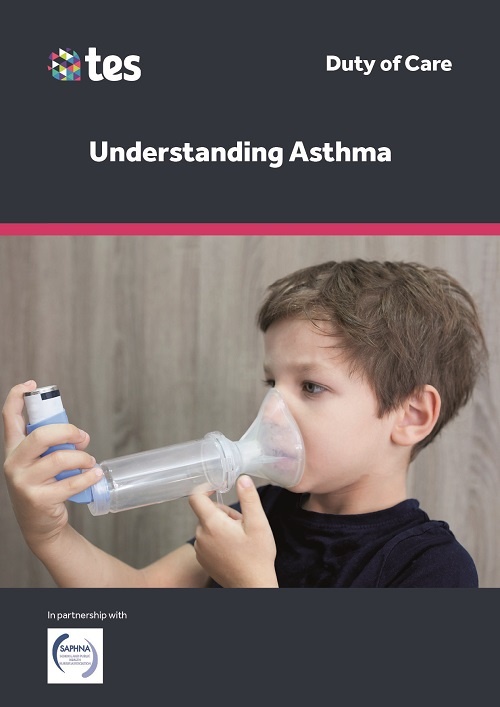
Understanding Asthma
This course covers what asthma is, information on symptoms and the different treatments available including procedures for emergency medication. Course developed in partnership with SAPHNA.
Read moreSuicide Awareness and Prevention
This course reports the facts about suicide and suicidal thoughts in young people and explains the warning signs to look out for. It will help you to talk to children and young people and looks at how to promote a suicide-safe approach in your setting.
Understanding Asthma
Understanding Asthma
This one module course delivers one CPD hour and comprehensively covers:
- what asthma is and the number of ways the airways react when someone is having an asthma attack
- information on the symptoms of an asthma attack
- information on common triggers
- a look at different treatments for asthma
- information on the two main types of inhaler
- a helpful video that demonstrates the use of inhalers
- important information on first aid treatments
- emergency procedures
- specific information for schools
_500.jpg)
The Governance of Safeguarding
This one module interactive course is suitable for governors working in primary and secondary school settings. It will improve your understanding and approach to safeguarding and safeguarding policy. The course outlines your leadership responsibilities for your school’s safeguarding arrangements, and includes explanations of key terminology, and legislation and statutory guidance for each of the four UK nations. It also outlines the role of the lead safeguarding governor, training in school and key policies and procedures. Examples throughout aid understanding and embed learning.
Read more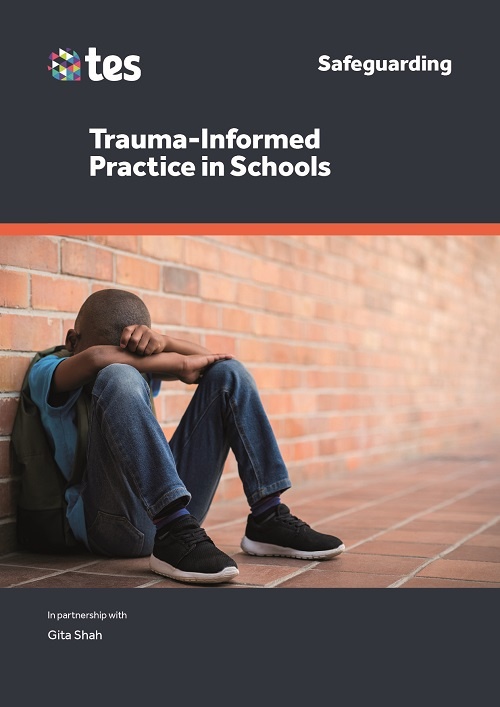
Trauma Informed Practice in Schools
This two-module interactive course is for anyone who works with children and young people in school settings. It is written in partnership with Gita Shah, a trauma-informed and therapeutic social work practitioner. It will improve your understanding of trauma and your ability to manage it in school.
Read moreThe Governance of Safeguarding
This one module interactive course is suitable for governors working in primary and secondary school settings.
It will improve your understanding and approach to safeguarding and safeguarding policy.
Trauma Informed Practice in Schools
This two-module interactive course is for anyone who works with children and young people in international school settings. It is written in partnership with Gita Shah, a trauma-informed and therapeutic social work practitioner.
It will improve your understanding of trauma and your ability to manage it in school.
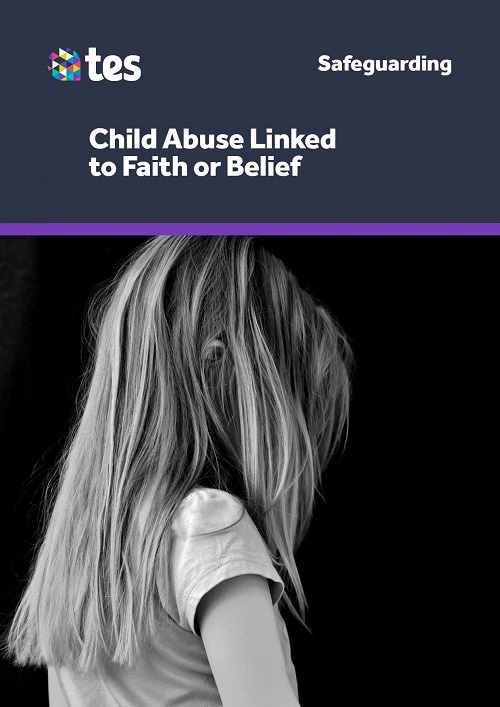
Child Abuse Linked to Faith or Belief
This one module interactive course is for anyone who works with children and young people in education settings. It will improve your understanding of, and approach to, abuse linked to faith or belief as a lesser known, but particularly harmful form of child abuse.
Read moreChild Abuse Linked to Faith or Belief
This one module interactive course is for anyone who works with children and young people in education settings.
It will improve your understanding of, and approach to, abuse linked to faith or belief as a lesser known, but particularly harmful form of child abuse.
You can purchase any of the following courses in addition to EduCare for Education® if they are relevant to your setting.

Child Protection in Education (Music)
Child Protection in Education (Music), developed by the Musicians' Union, is for those who work with children and young people in a music setting.
Read more
Working with Display Screen Equipment
Display screen equipment (DSE) is common throughout the workplace. Regulations apply to those who work with DSE as a significant part of their normal work. We trust that you will find the information in this course useful in your work and daily life.
Read moreChild Protection in Education (Music)
This five module course delivers five CPD hours and covers:
- what forms child abuse can take (including other harms such as FGM, forced marriage and sexual exploitation) and the effect it can have
- extremism, radicalisation, and the Prevent duty
- signs that may mean a child is suffering abuse and how to respond if a child confides in you
- processes for reporting abuse
- the child protection system
Working with Display Screen Equipment
This one module course delivers one CPD hour and comprehensively covers:
- what display screen equipment is and the risks
in using it improperly - your employer’s duties under the Health and Safety (Display Screen Equipment) Regulations 1992
- what you should do to ensure your health and safety when using display screen equipment
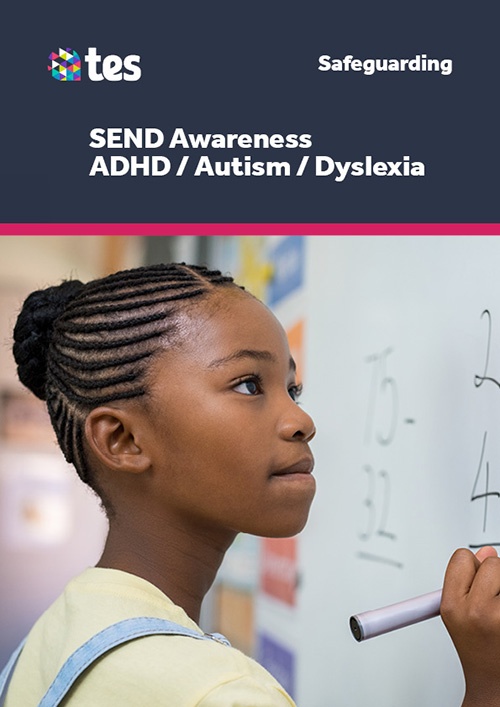
SEND Awareness Courses - Dyslexia, ADHD, Autism
Written in partnership with Connect, SEND Awareness includes three one-module courses designed to provide an overview of Autism, Dyslexia, and ADHD for those working in education.
Read more_500.jpg)
Risk Assessments for School Trips
Schools have been organising and delivering successful educational visits and trips for many years. This course has been written in partnership with health and safety experts to help you develop risk assessments that are sensible and proportionate for the level of risk presented during the trip.
Read moreSEND Awareness Courses - Dyslexia, ADHD, Autism
SEND Awareness contains three one-module courses, written in partnership with Connect.
- Autism Awareness - covers what autism is, its prevalence and causes, how it is diagnosed and the implications for pupil learning.
- Dyslexia Awareness - provides an overview of dyslexia and visual stress for those that work with children and young people.
- ADHD Awareness - covers the causes, prevalence, symptoms and diagnosis through to treatment and how to support children with ADHD.
Risk Assessments for School Trips
This course covers:
- the legal position for educational visits and their requirements
- parental consent
- policy, procedures and competency
- the risk assessment process
- the terminology used
- other factors to be considered
- what should be in place when using partnership, host organisations and tour operators
- the importance of carrying out the required research
- the evaluation and debrief process
- contingency planning in the event of something going wrong

Anti-Fraud, Bribery and Corruption
According to the National Crime Agency, fraud is the most commonly experienced crime in the UK. The impact isn’t simply a financial cost for big organisations; fraud has devastating physical, psychological and social effects on individuals, families and communities. By finding out more about fraud, bribery and corruption, you can help to reduce them, and keep yourself and your organisation safe.
Read more
Cyber Security
Fraud and cyber-crime are the country’s most common offences and the biggest threat to national security. Many organisations become victims of cyber-crime because of human error, just not thinking or people not following the correct protocol. This course will help you understand the best practice to minimise the risk of a cyber-attack.
Read moreAnti-Fraud, Bribery and Corruption
Anti-Fraud, Bribery and Corruption
This one-module, CPD-acredited course covers:
- What fraud, bribery and corruption are, and what form they can take
- Being aware of the increased risk factors in organisations and industries
- Examples of common types of fraudulent activities
- The prevention and detection measures everyone must take
- How to report a suspected fraud
- Scenario examples of fraud, bribery and corruption
- Further information on the organisations you can contact for help and advice
Cyber Security
Cyber Security
This one-module, CPD-acredited course covers:
- Risk in the online world
- Understanding what a cyber attack is
- Understanding what information needs protection
- The effects of cyber-crime
- Understanding the types of cyber-attack
- Understanding the cyber security policies your organisation should have in place
- The steps you can take to minimise the risk of a cyber-attack
- Guidance on the detection and reporting of cyber-crime
- Information on the support available

Parental Responsibility in Schools
This course will help you to understand your obligations and duties in relation to the rights and responsibilities of parents. It references the law and government guidance and offers a range of scenarios for your consideration.
Read more
Search, Screen and Confiscate for Schools
Schools have a responsibility under health and safety legislation to minimise risks to pupils, staff and visitors, and they have statutory powers to make rules about pupil behaviour to facilitate this. Both searching and screening contribute to the safety of the school by enabling staff to identify and remove prohibited items such as weapons and alcohol.
Read moreParental Responsibility in Schools
This course covers:
- The legal definition of a parent under family and education law
- An overview of parental rights and responsibilities
- Scenarios to establish who has parental responsibilities
- Examples of how court orders are used to resolve disputes
- Schools' legal requirements in relation to the admission register
- Communication between schools and parents, with real-life situations for discussion
- Dealing with conflict between parents and complaints
- Information on surname changes, safeguarding and additional support
Search, Screen and Confiscate for Schools
This course covers:
- who can search and when?
- what you can search for the consent and without consent
- the statutory prohibited items
- items the school can ban at their own discretion
- examples of reasonable grounds for conducting a search
- the extent to which the staff can search
- how to conduct a search
- what to do if a pupil refuses to co-operate with a search
- different types of screening
- what staff should do with confiscated items
- what to do with electronic devices found during a search
- recording and reporting searches
- what the law says about searching, screening and confiscation
- good practice

Effective Health and Safety for Children with SEND and ASN Online Course
All children and young people have a right to education, regardless of any special educational needs or disability (SEND) or additional support needs (ASN). This course will help you to understand your legal obligations regarding the health and safety of those with SEND and ASN.
Read more
Bullying and Harassment in the Workplace
Bullying does not only affect children and young people; it can also be a very real concern in the workplace. The aim of this course is to raise awareness of the issue by including scenarios to show the impact of bullying and harassment on individuals and organisations. It gives practical suggestions for creating a friendly and inclusive workplace where bullying and harassment are not tolerated.
Read moreEffective Health and Safety for Children with SEND and ASN Online Course
This course comprehensively covers:
- Legislation and guidance
- Managing risk
- Reasonable adjustments
- Moving and handling
- Other considerations
- Emergency procedures
Bullying and Harassment in the Workplace
This one
- What is bullying?
- The law relating to bullying and harassment
- The impact of bullying and harassment
- Types of bullying
- Signs of bullying and harassment
- Addressing bullying and harassment
- Where to go for advice and support
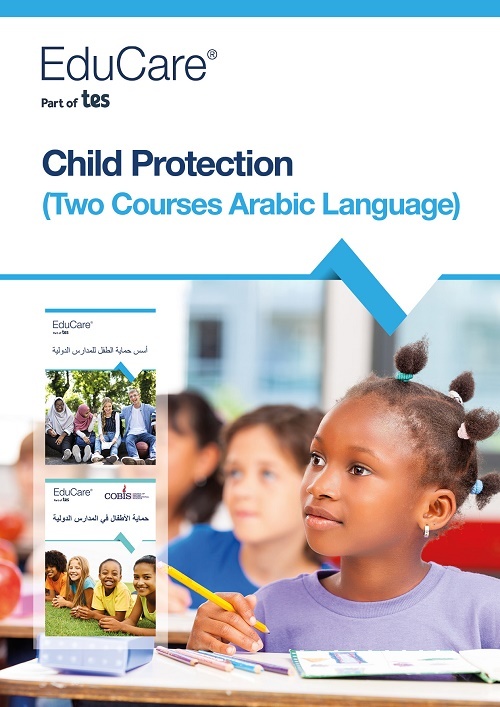
Child Protection for International Schools: Arabic language bundle
This two-course bundle contains our Child Protection for International Schools and Child Protection Basics for International Schools courses, both delivered in the Arabic language. This bundle is available as an addition to EduCare for Education, our online learning service.
Read more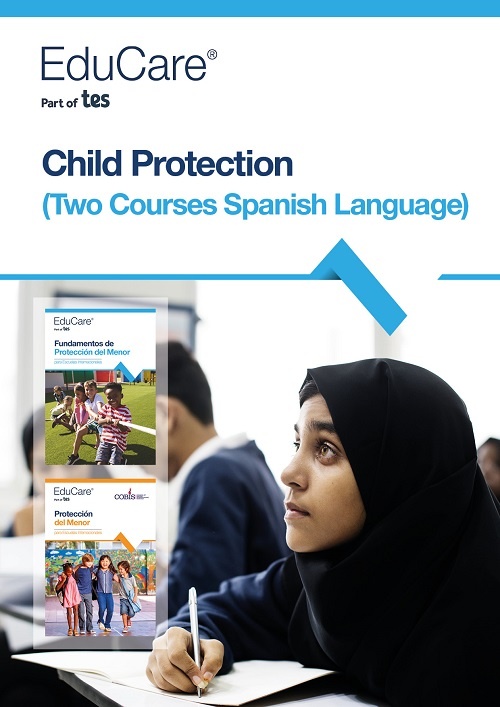
Child Protection for International Schools: Spanish language bundle
This two-course bundle contains our Child Protection for International Schools and Child Protection Basics for International Schools courses, both delivered in the Spanish language. This bundle is available as an addition to EduCare for Education, our online learning service.
Read moreChild Protection for International Schools: Arabic language bundle
The courses included in this package are below:
Child Protection for International Schools: Spanish language bundle
The courses included in this package are below:
_500.jpg)
Infection Prevention and Control in Education
Schools are common sites for the transmission of infections. Everyone who works in an education setting has a duty of care to their colleagues, and the children and young people in their care, to reduce this risk. With the advent of the Covid-19 pandemic, it has never been more important to have a refresher on the principles and practice of infection prevention and control.
Read moreInfection Prevention and Control in Education
In this course you will learn how infections are transmitted and the steps that you can take to prevent this happening. It also includes measures to control infection should it occur. This course was written in partnership with the School and Public Health Nurses Association (SAPHNA).
What is EduCare for Education?
This simple video should help to explain the online learning service.
10 key benefits of training with EduCare
Compliance
Ensures staff are always up-to-date on
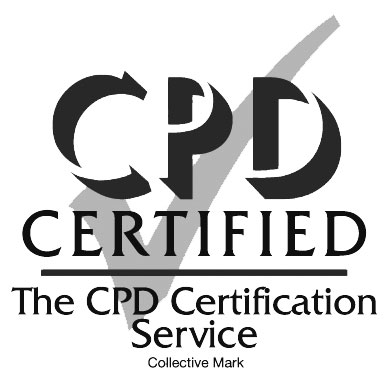
Verified for CPD
All training courses have been verified to provide learners with CPD hours.
Progress Monitoring
Administrators and managers can monitor learner progress with powerful management reports.
Full Coverage
Staff who may be in different locations, with varying work patterns, can all access the same content.
Certification
Personalised, certificates can be downloaded by each learner upon successful completion of any course.
24-7 Access
All courses are delivered online and can be accessed by anyone, at home or at work, 24-7.

Helpful
Our UK based Customer Services team are available to answer queries by phone, email or online chat.

Unlimited access
All new starters, support staff, volunteers, governors and parents can access training throughout the year. Unlimited really means unlimited.

Informative
All our training courses are designed to be simple, clear and concise.

Peace of mind
Training will be regularly updated as standards are introduced or modified.
Circle of Excellence
We work with a wide range of subject experts, who play a key role in contributing to, review, and endorsing our training. This ensures our courses are always accurate, up-to-date and of the highest quality. We also work with many of our key customers to ensure our training continually meets the needs of their sector.


